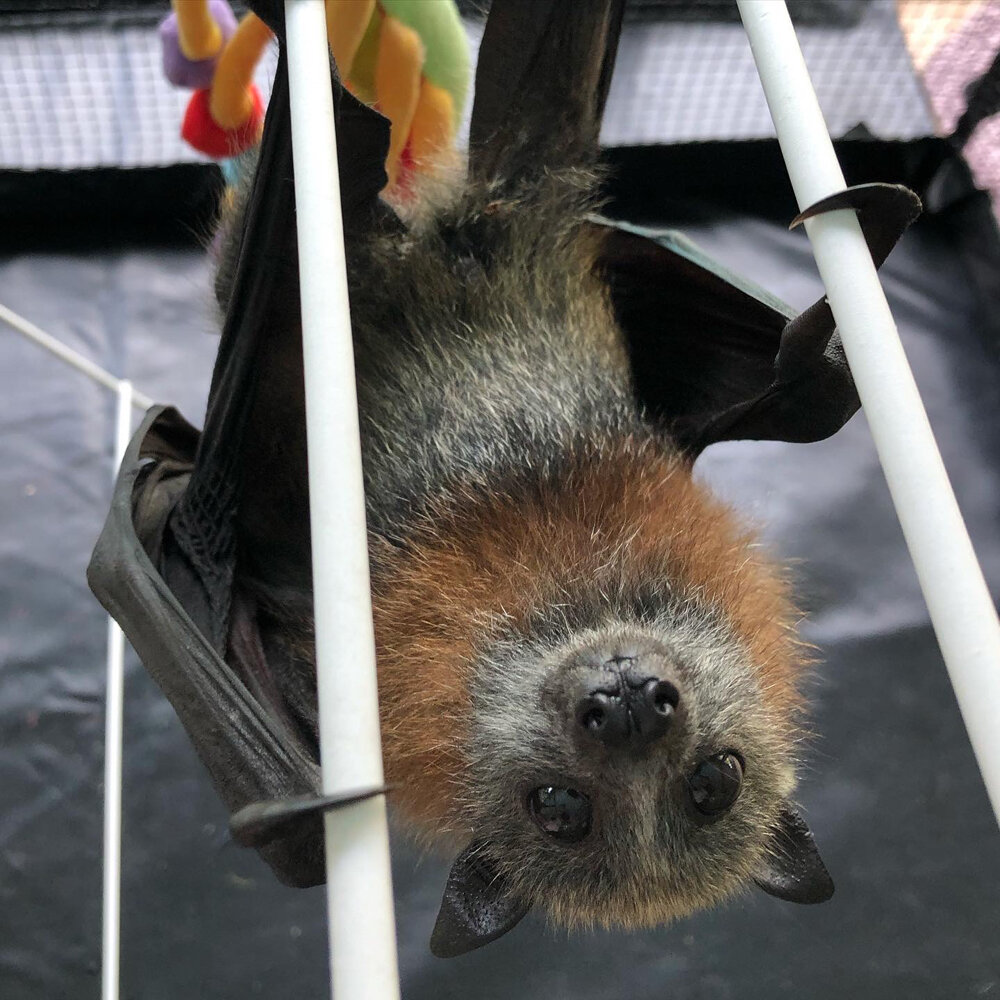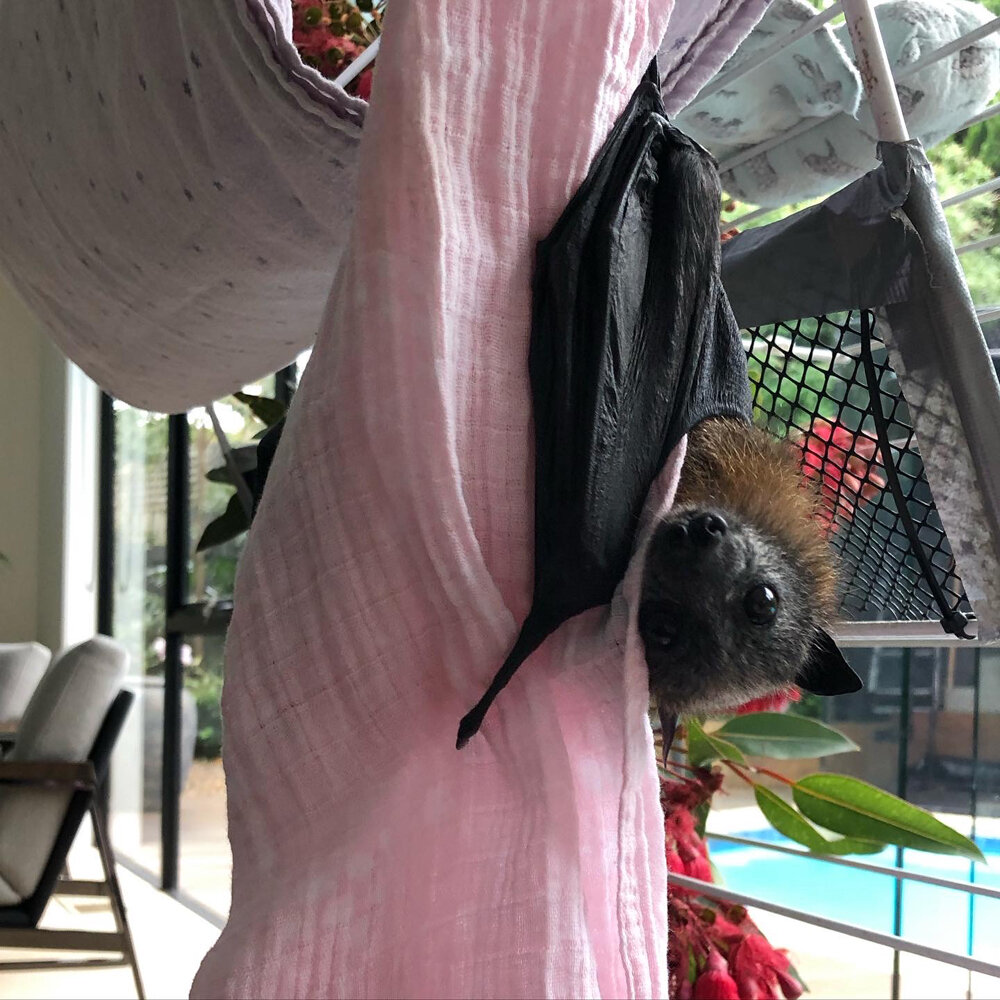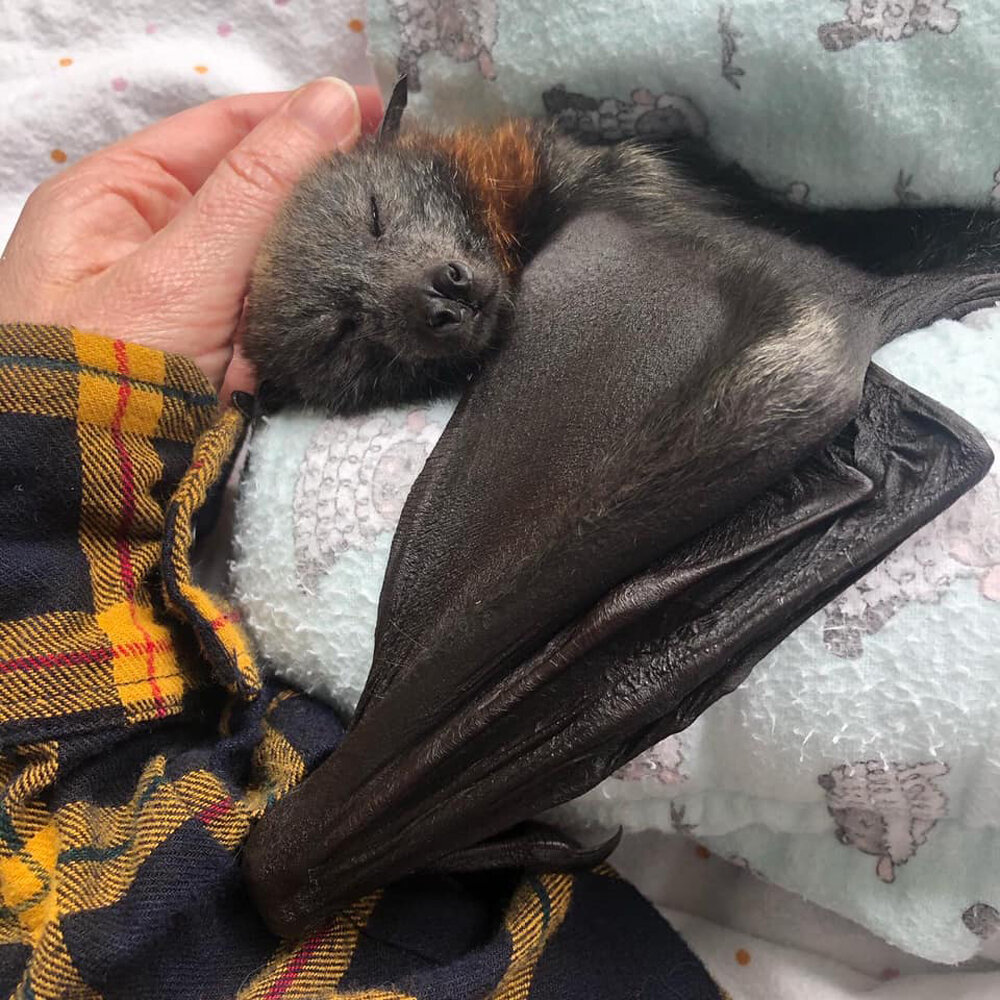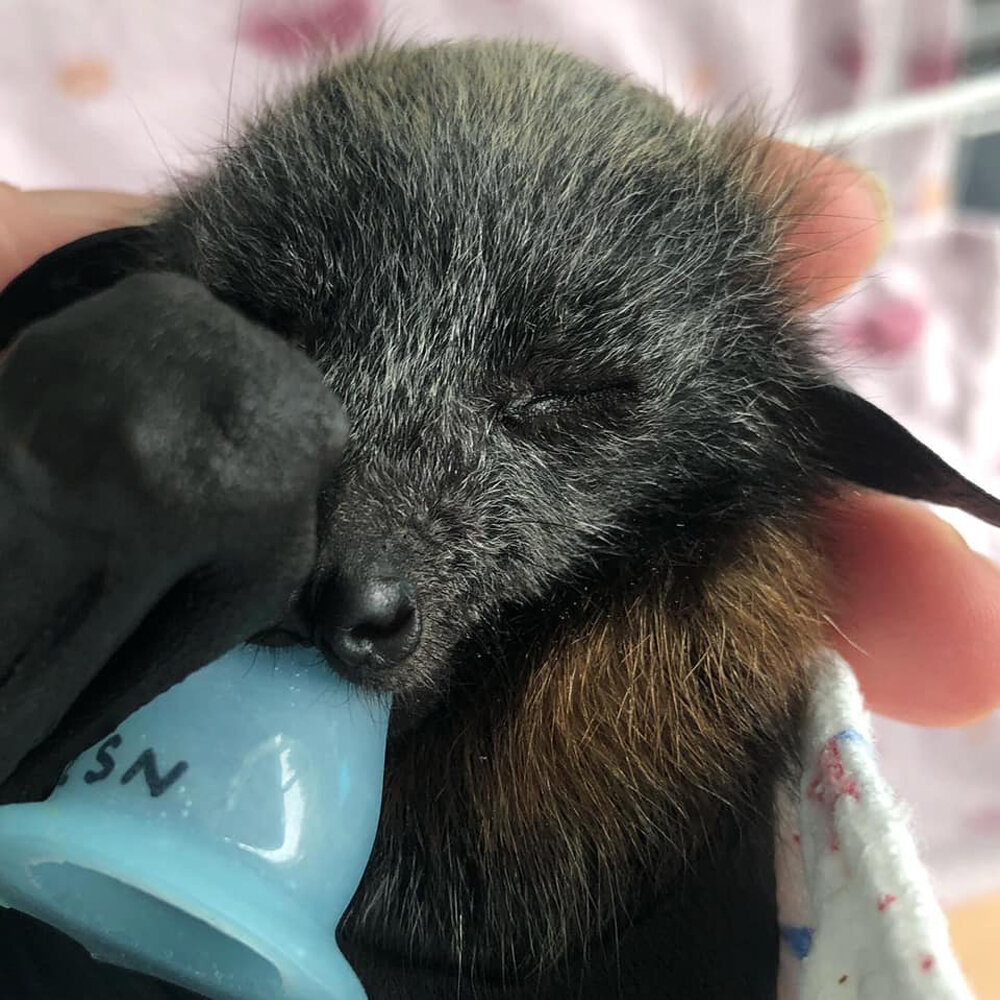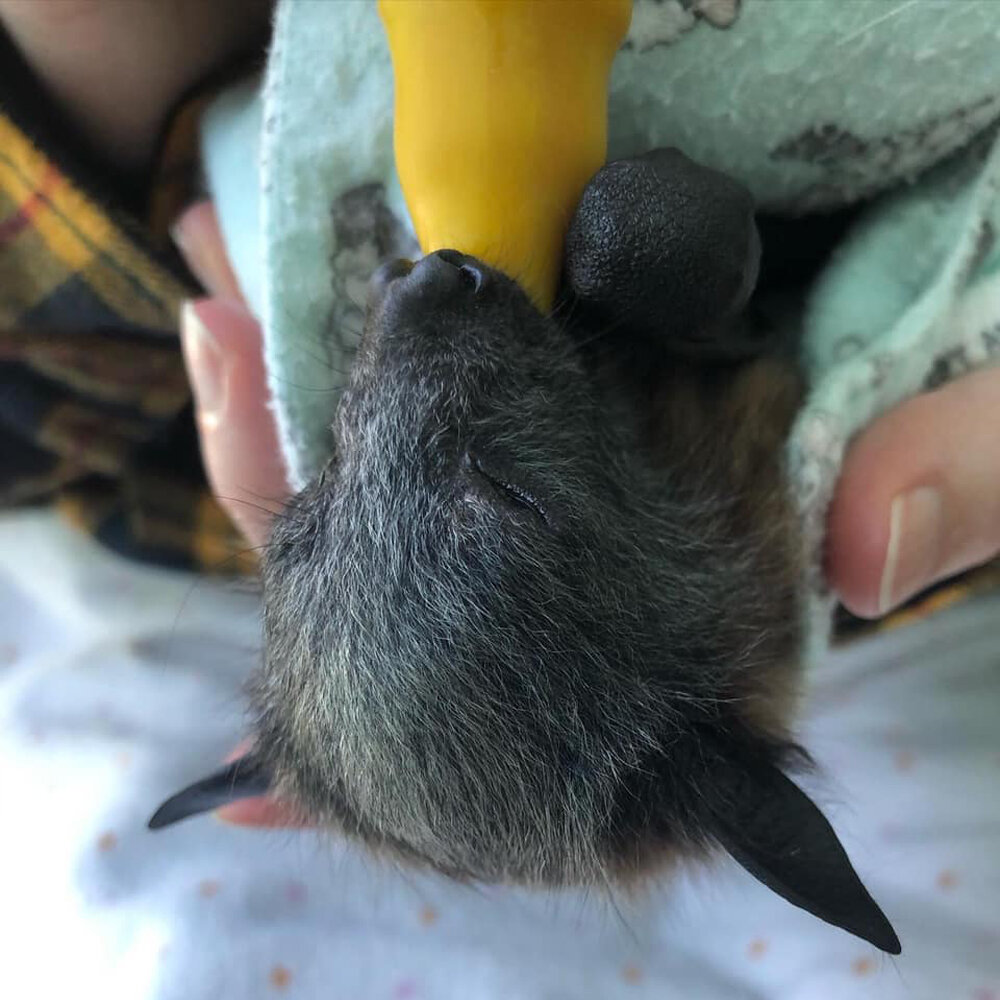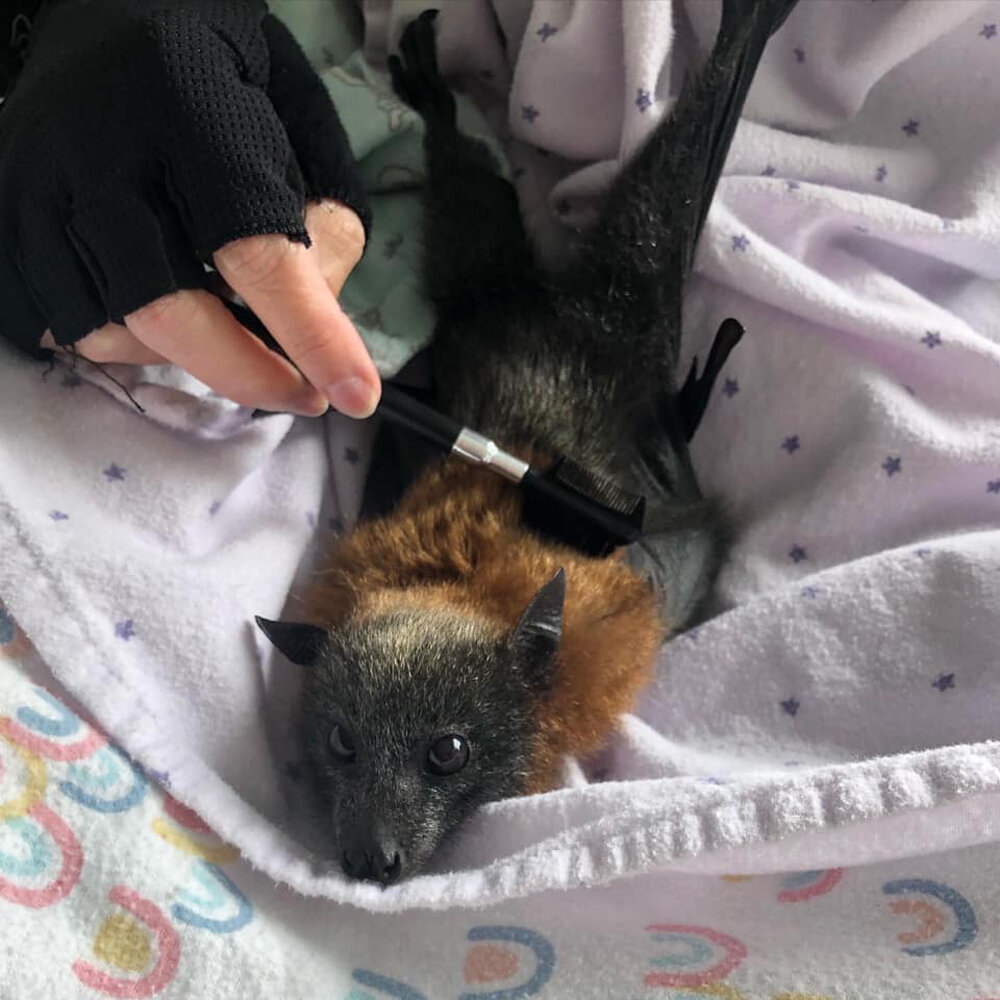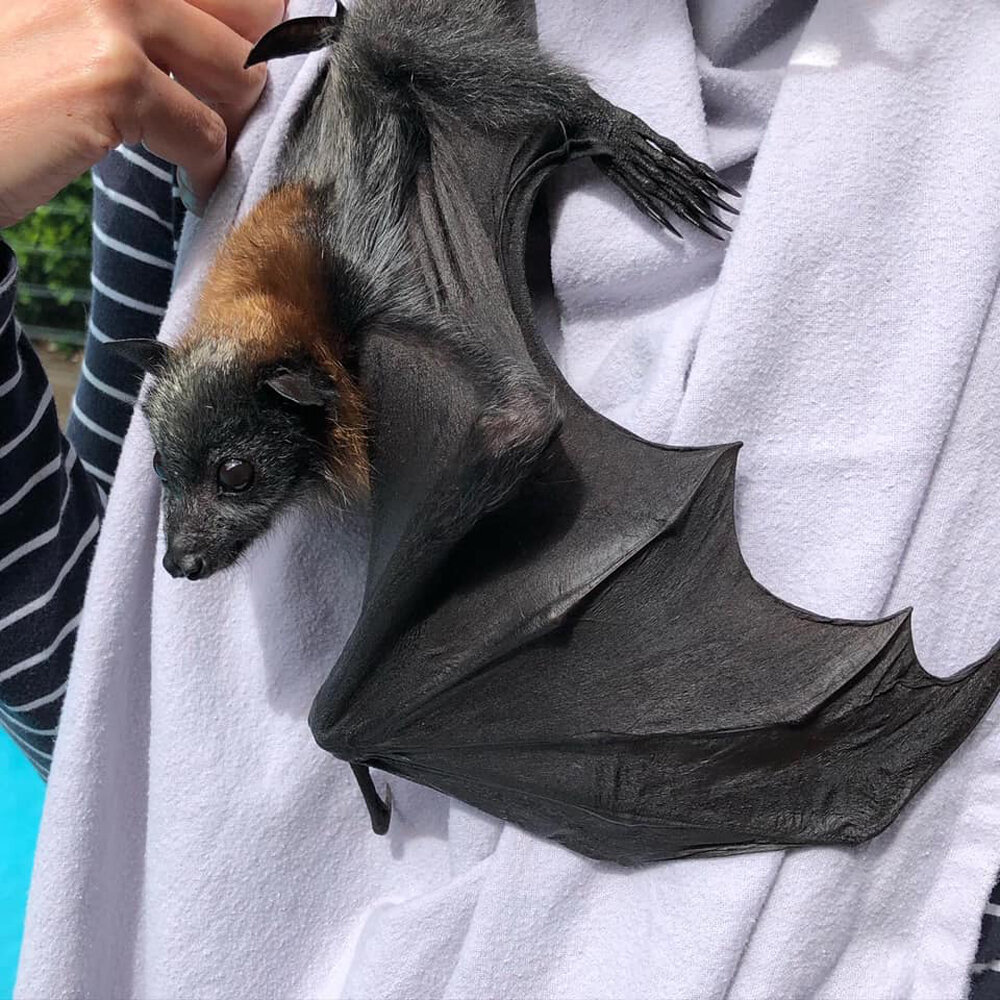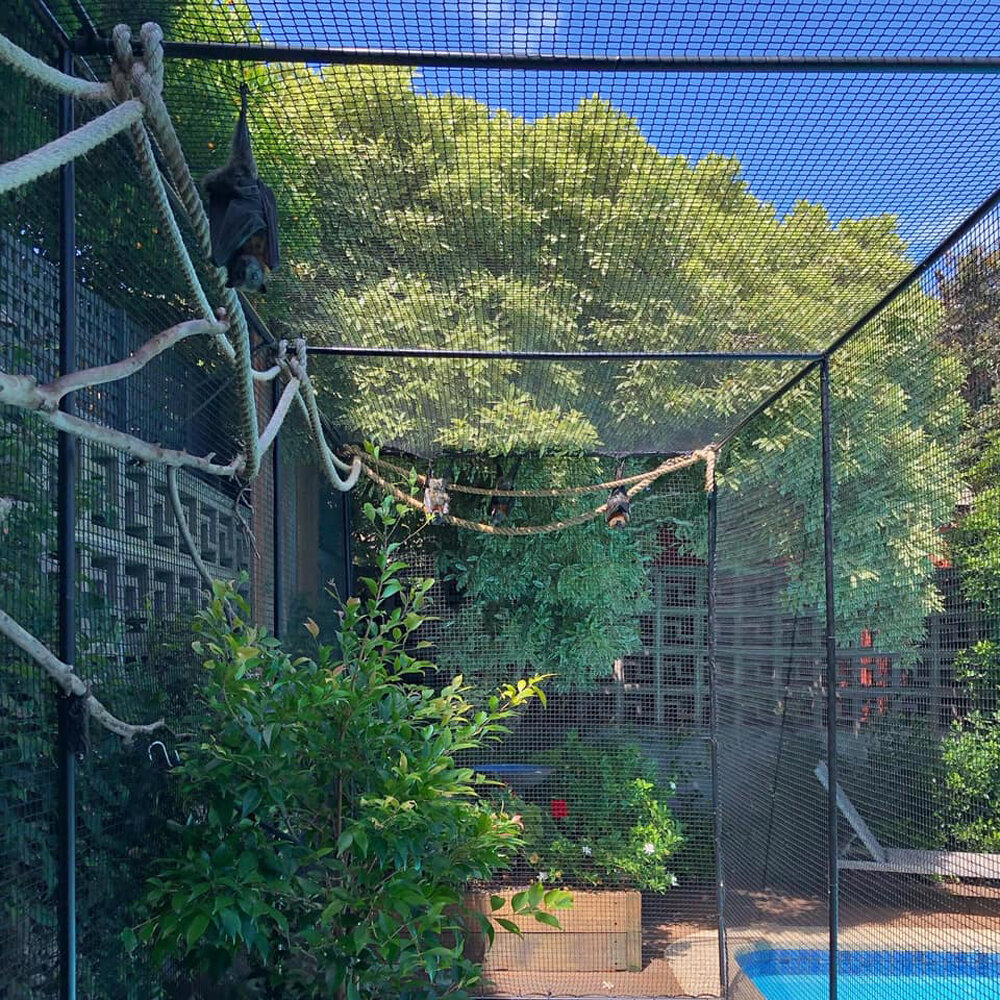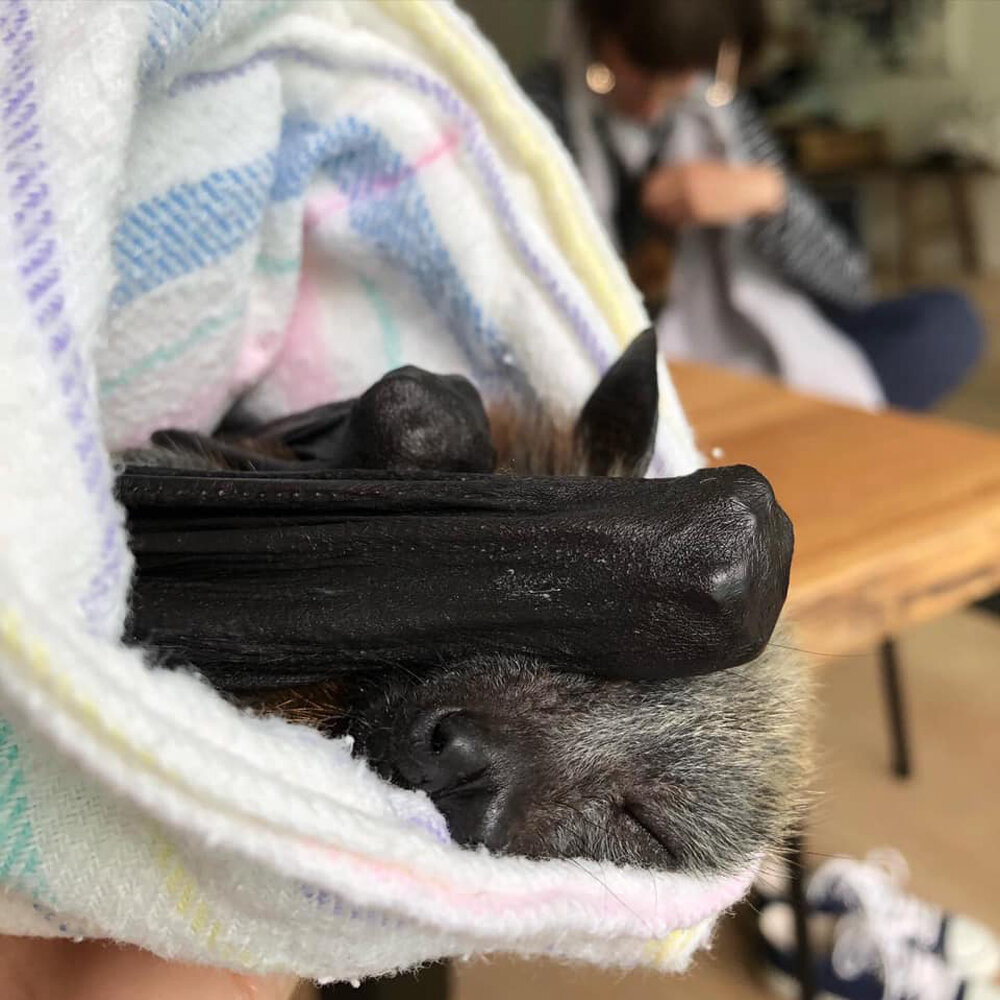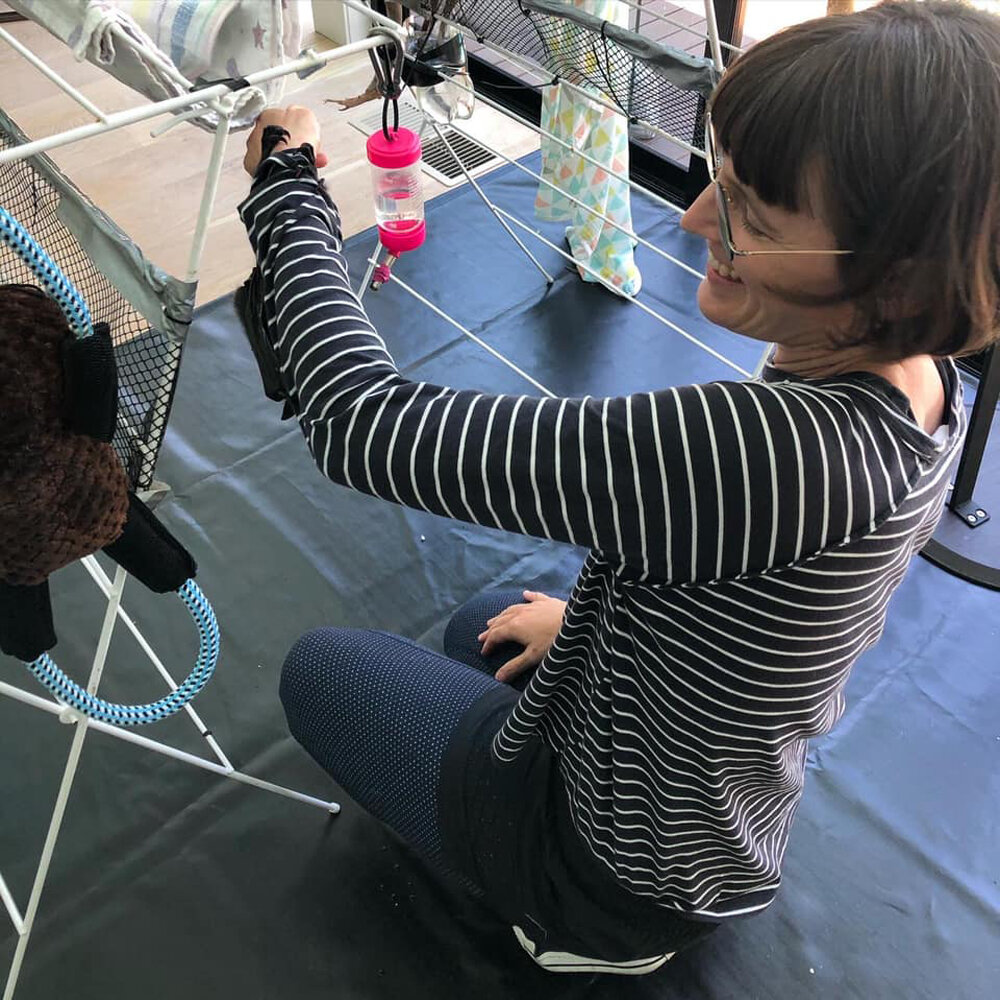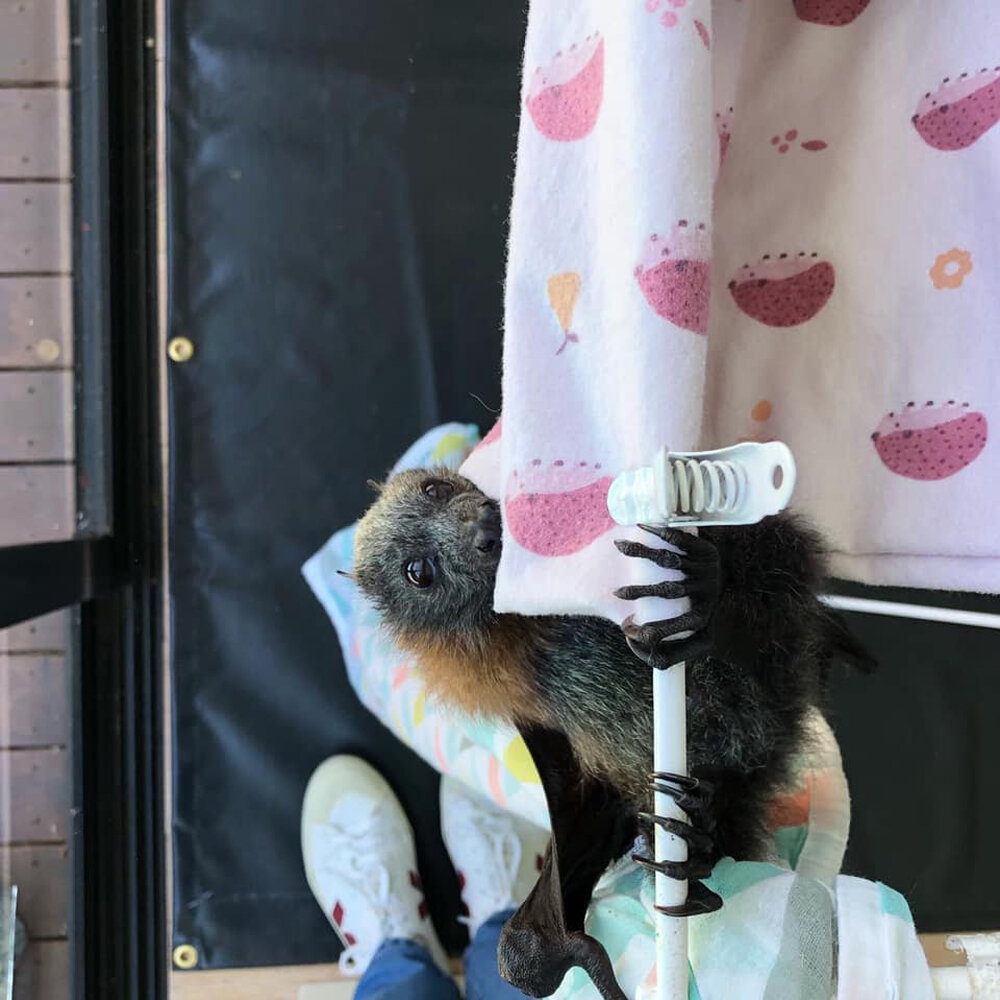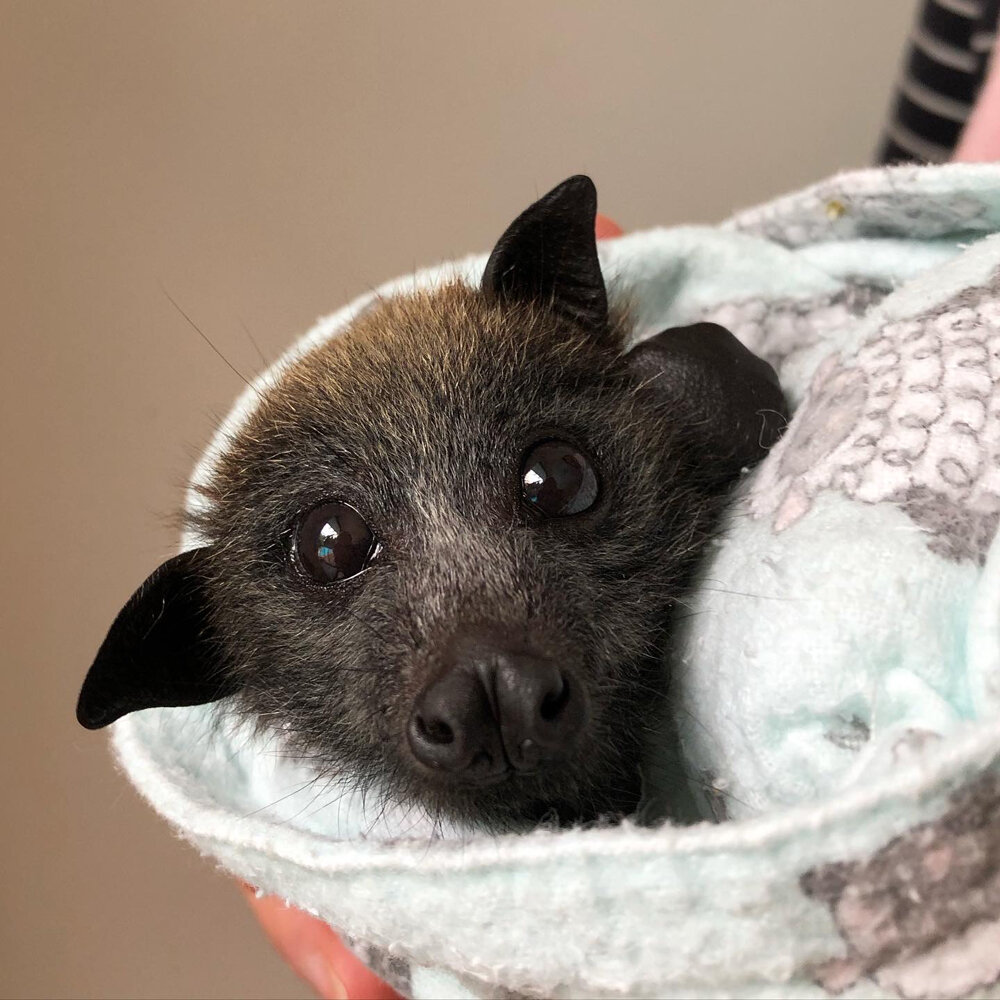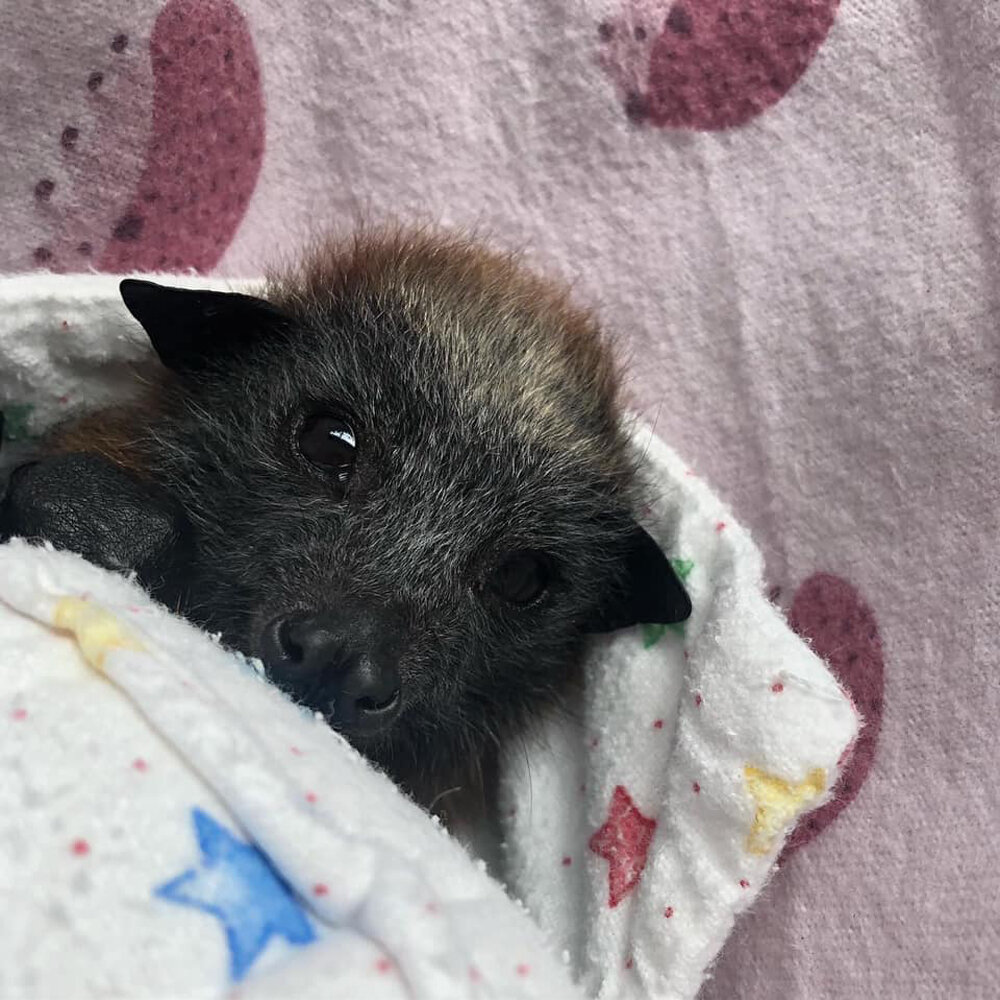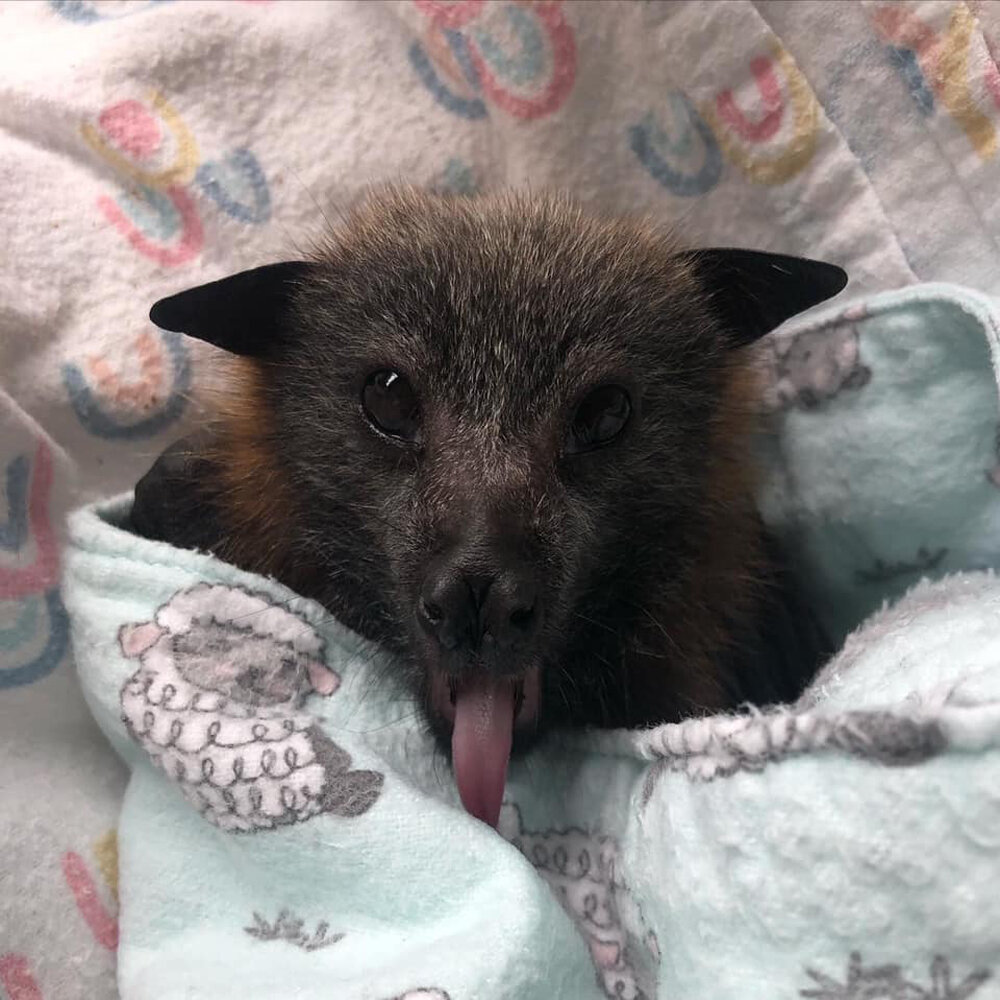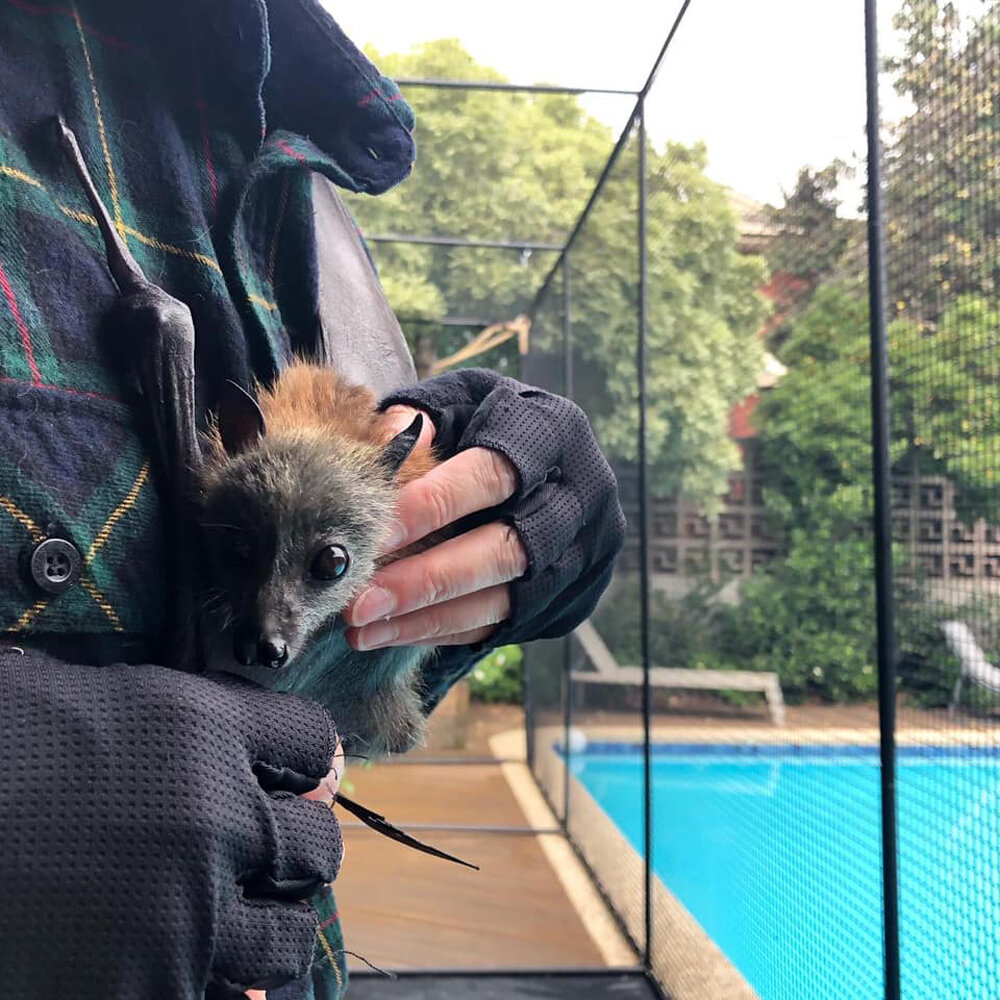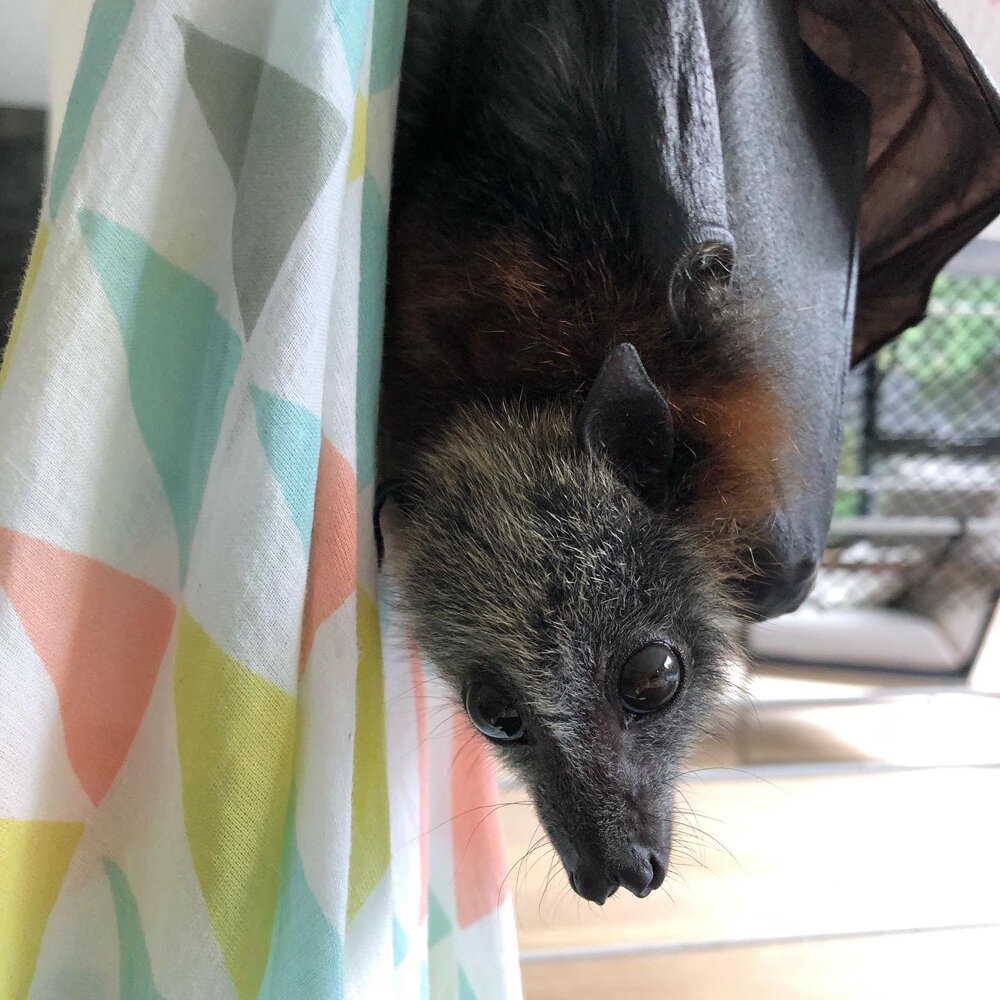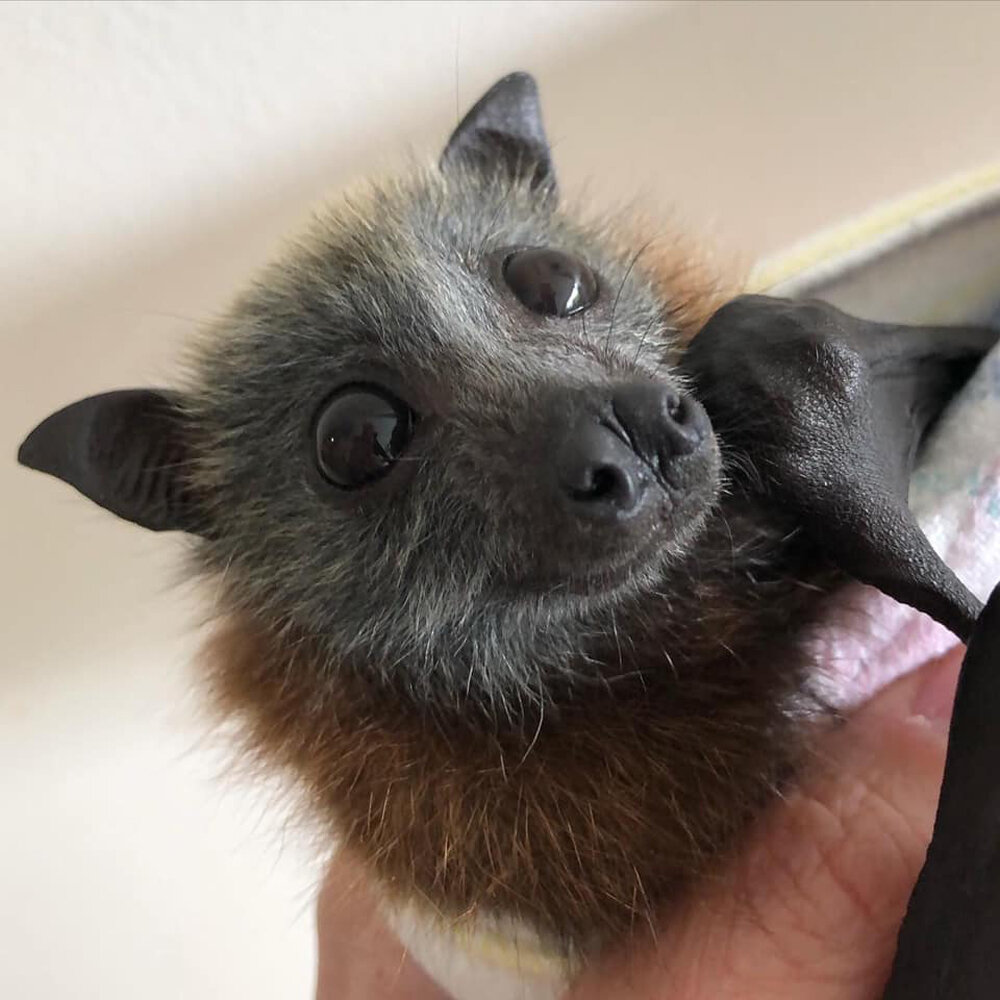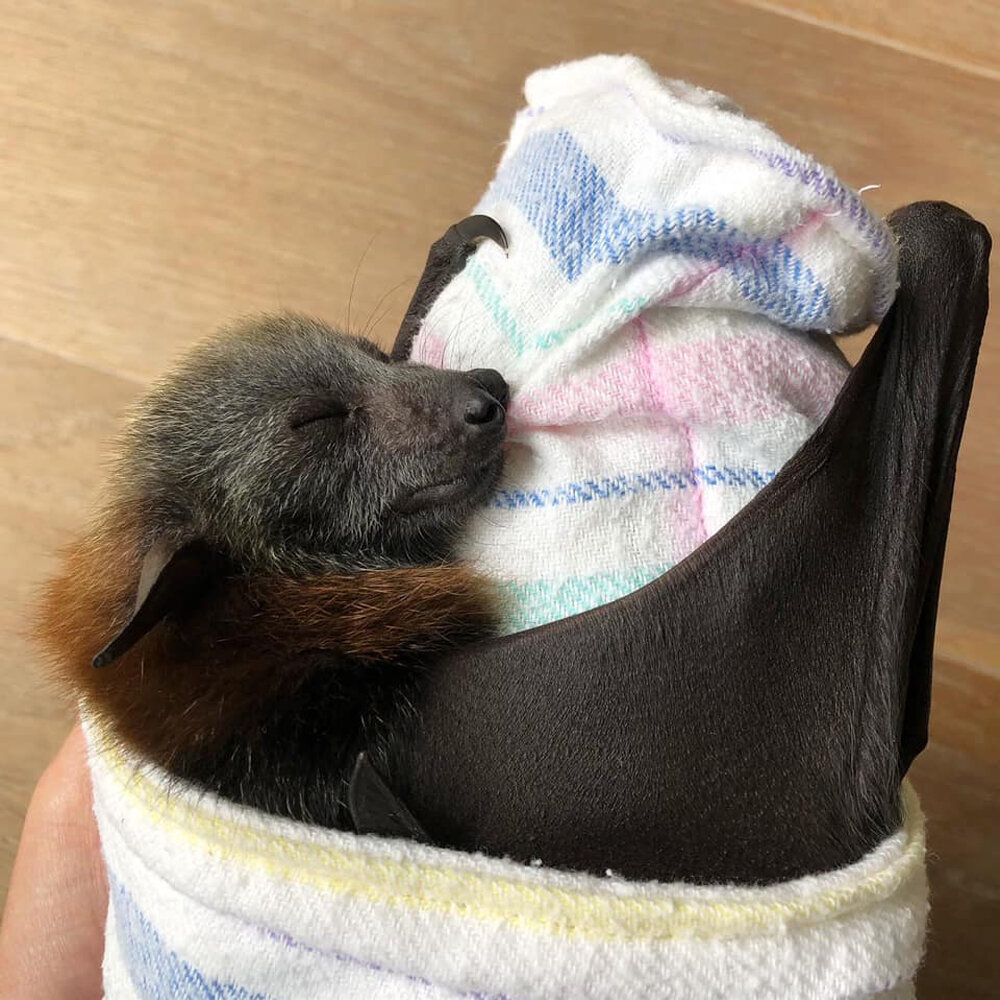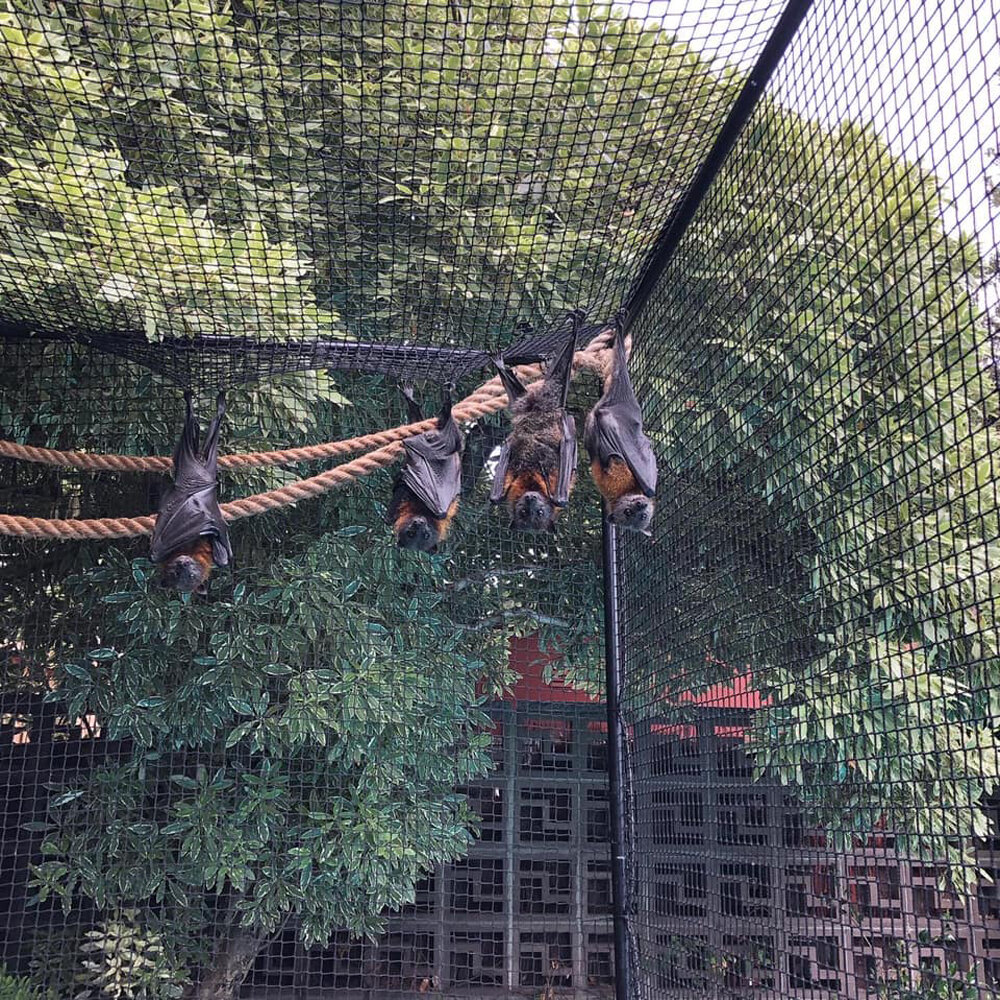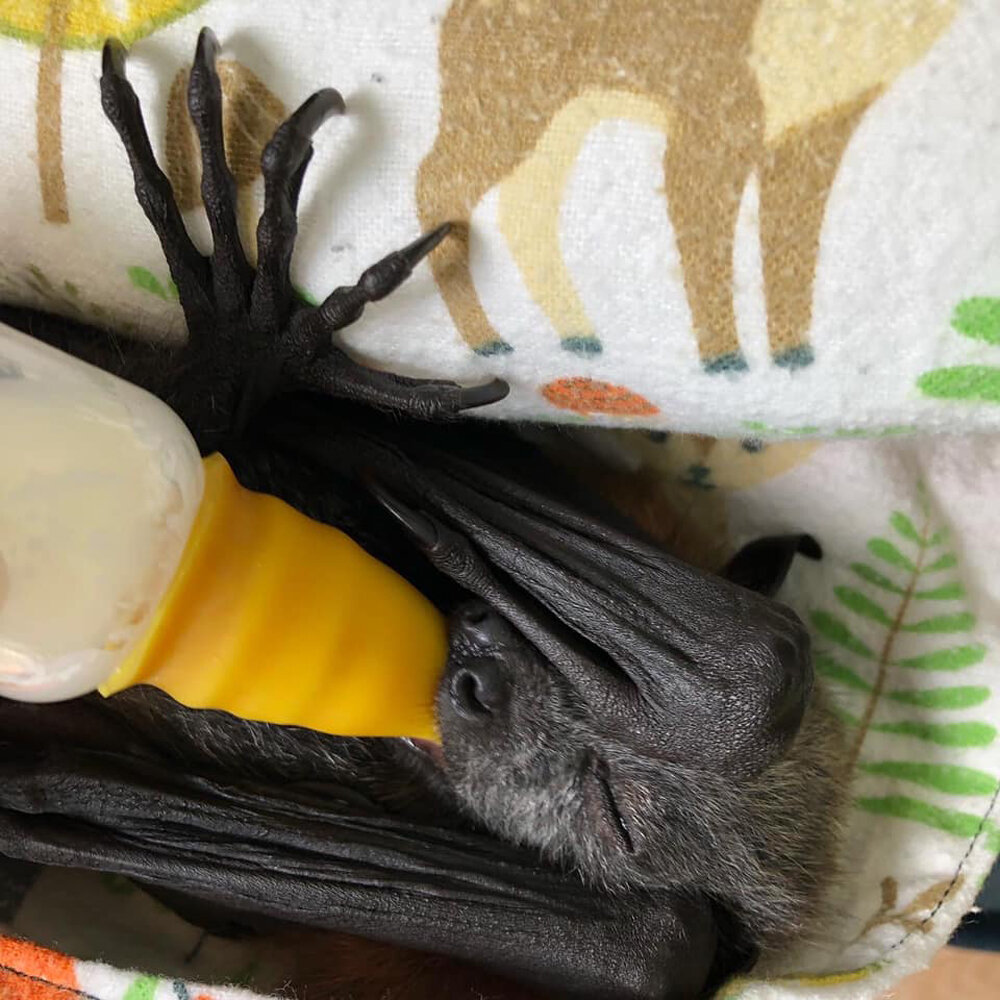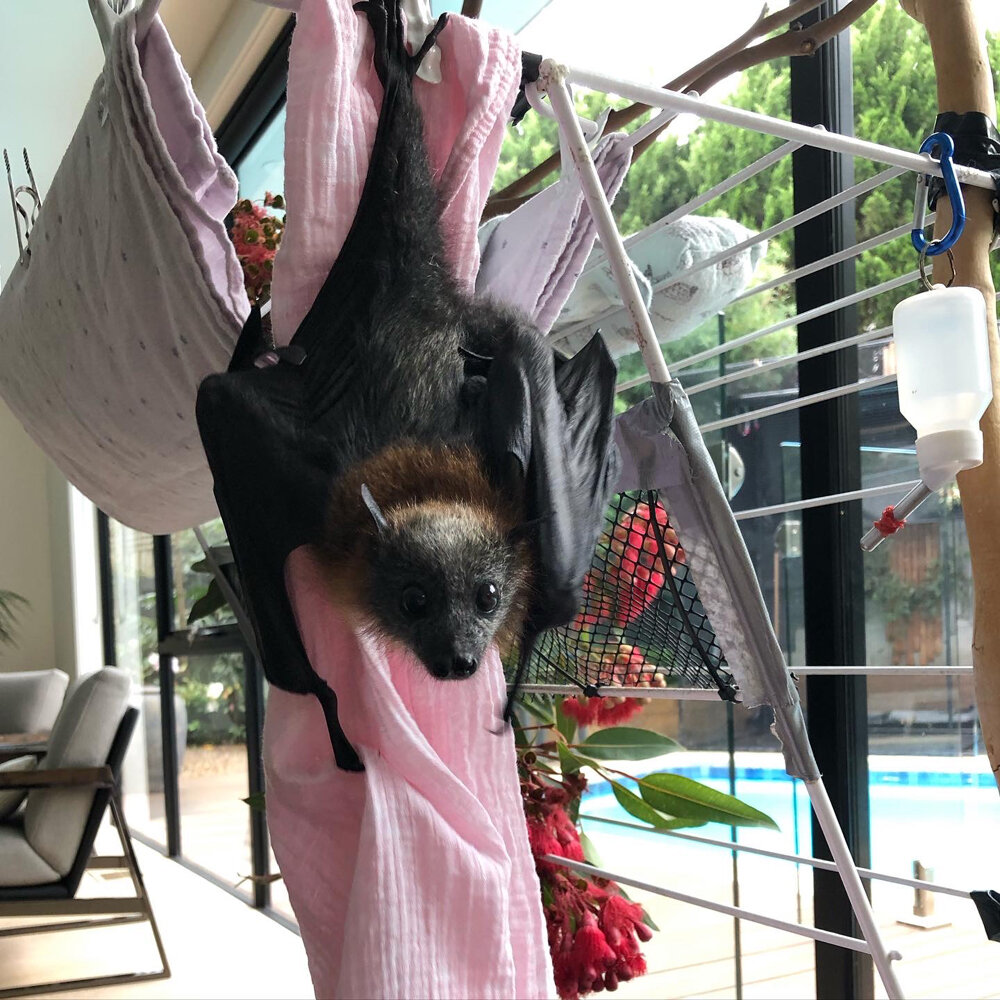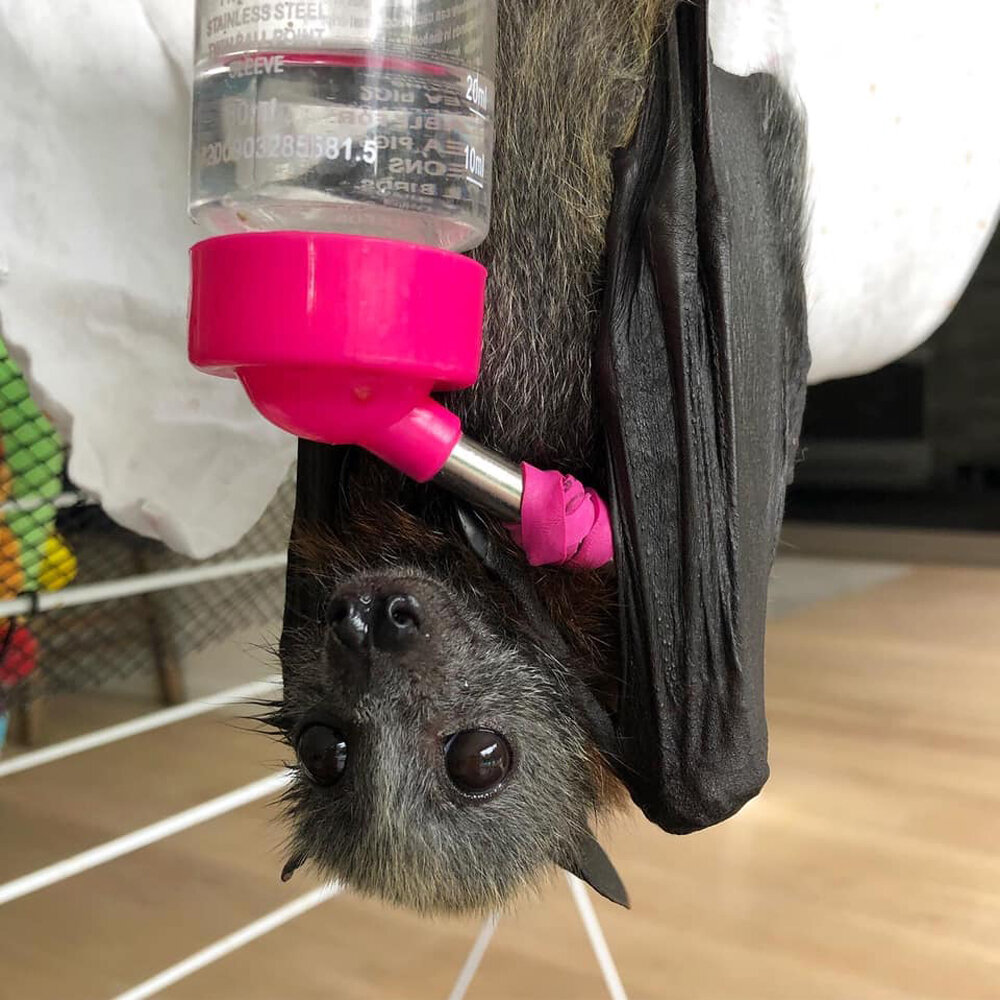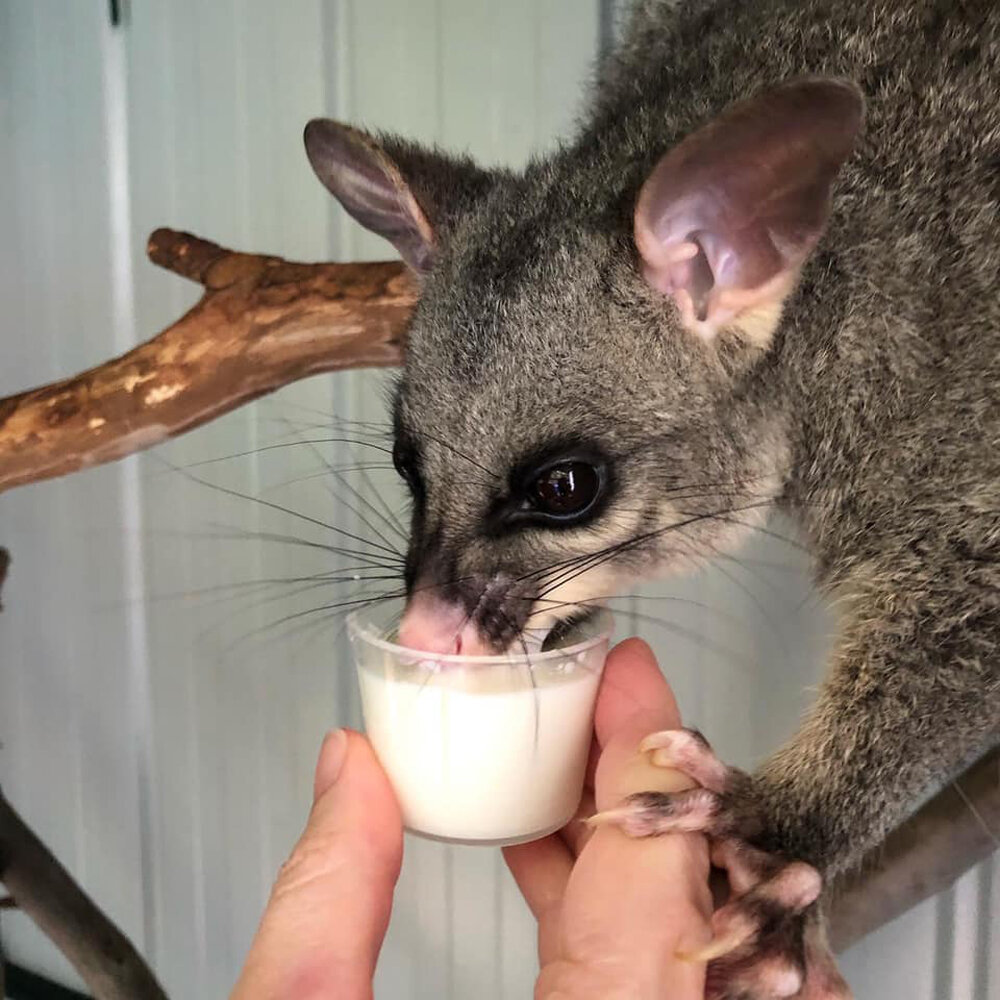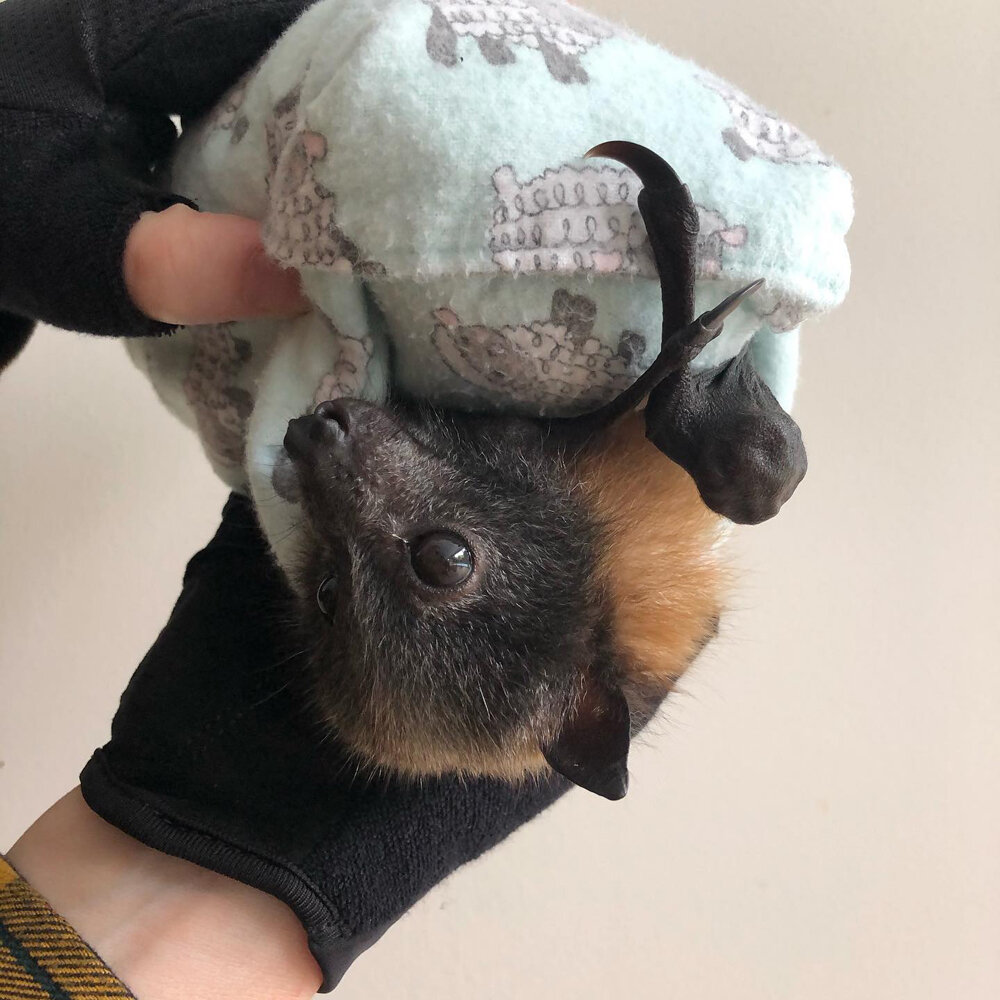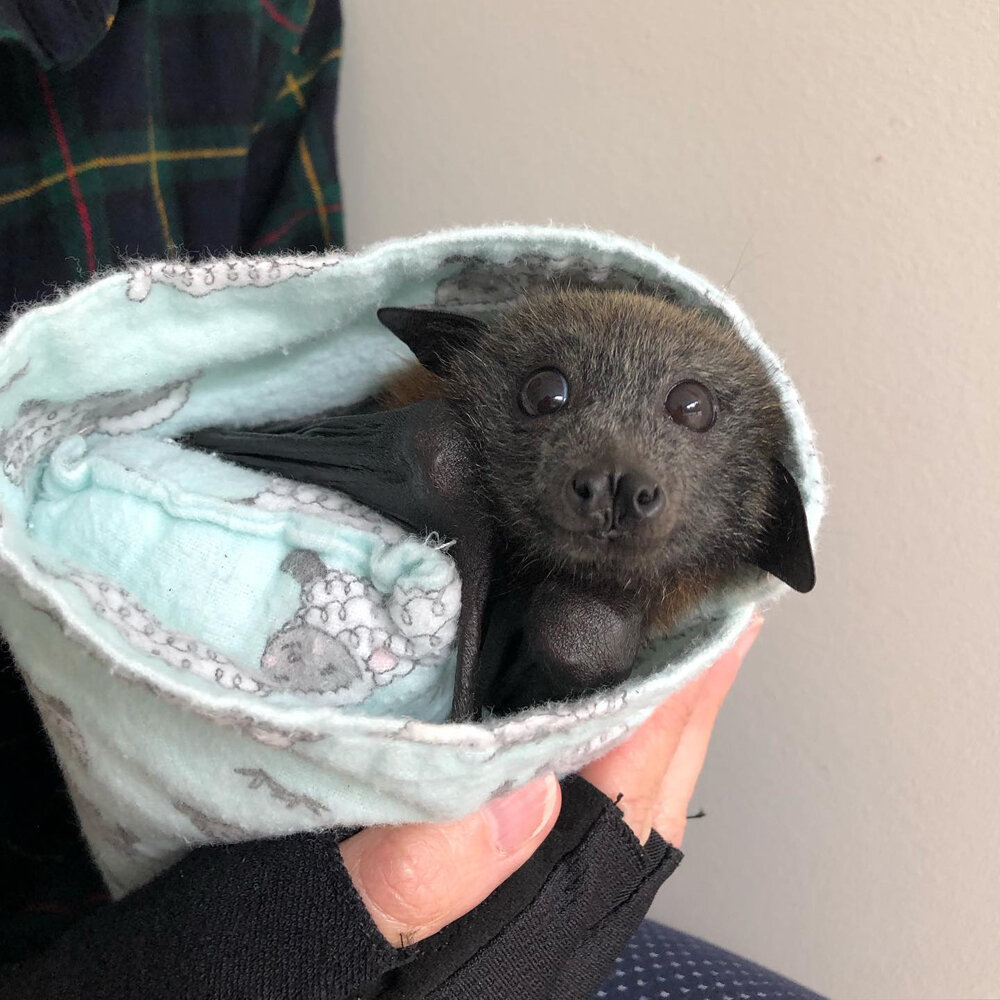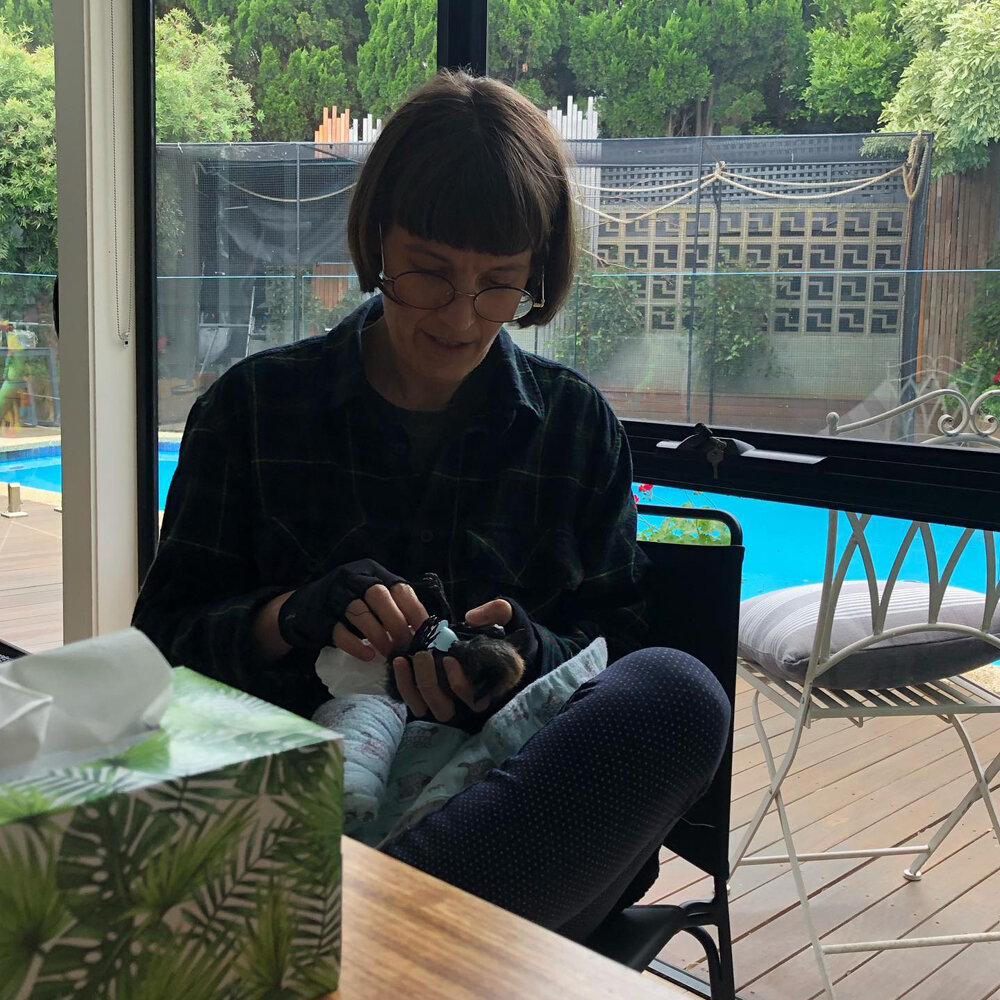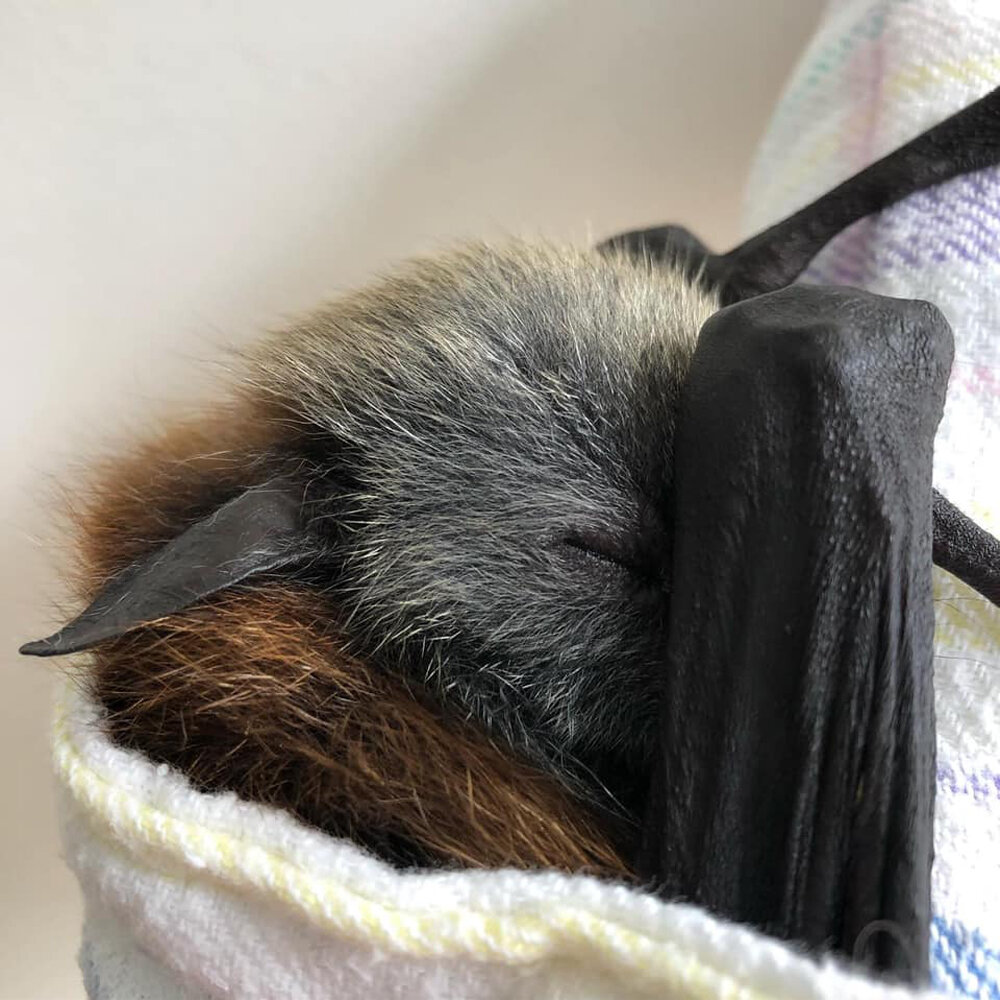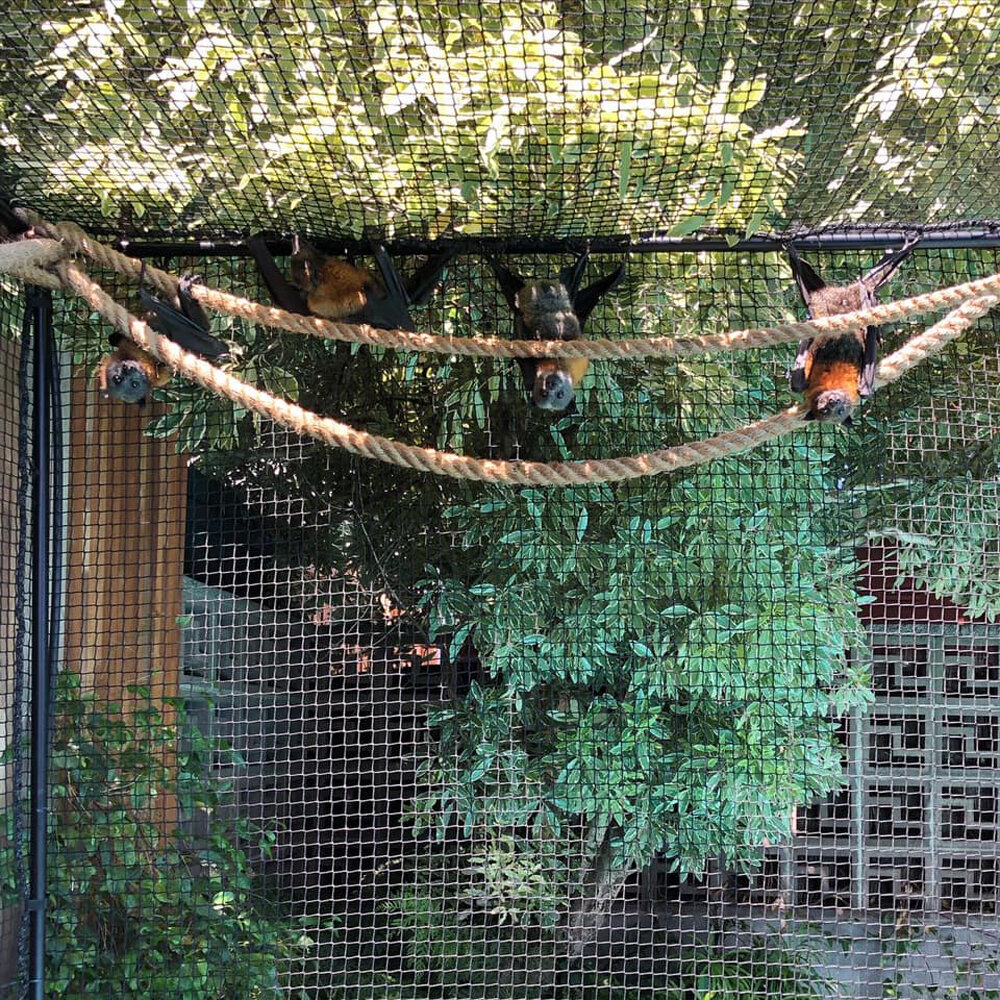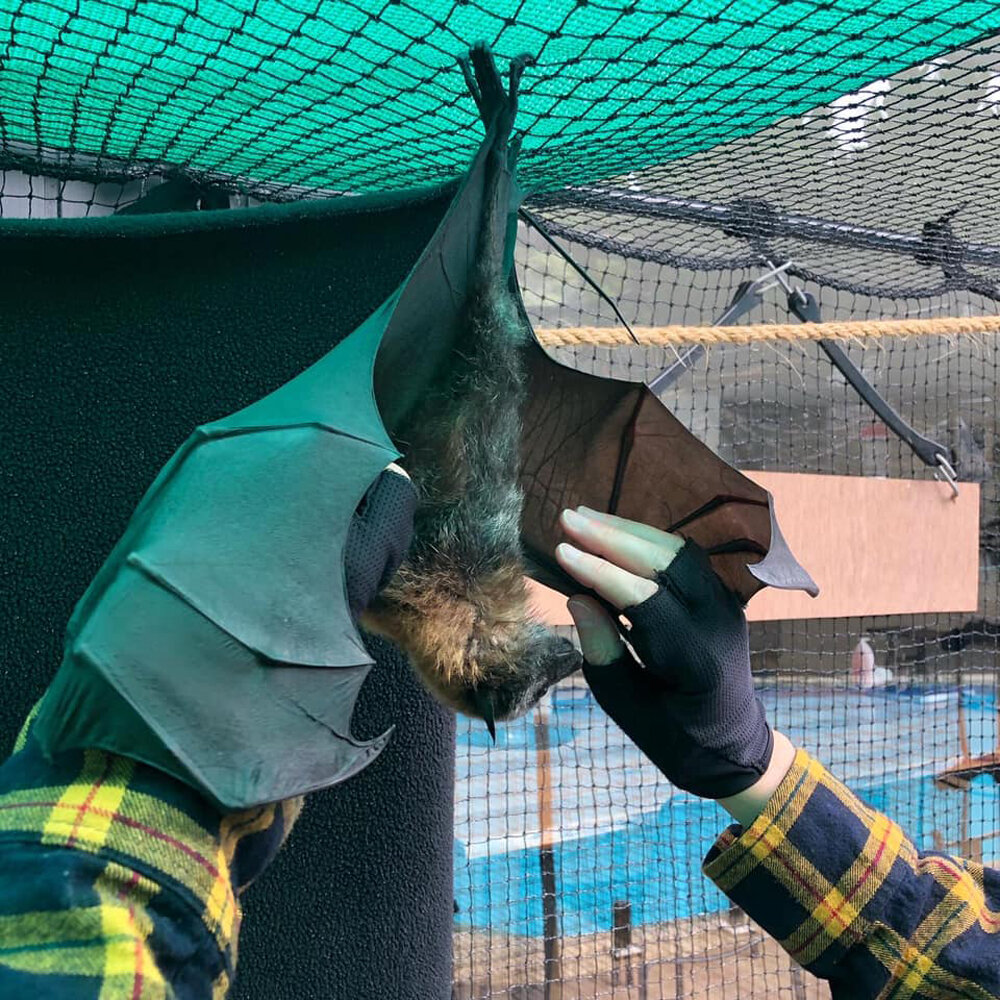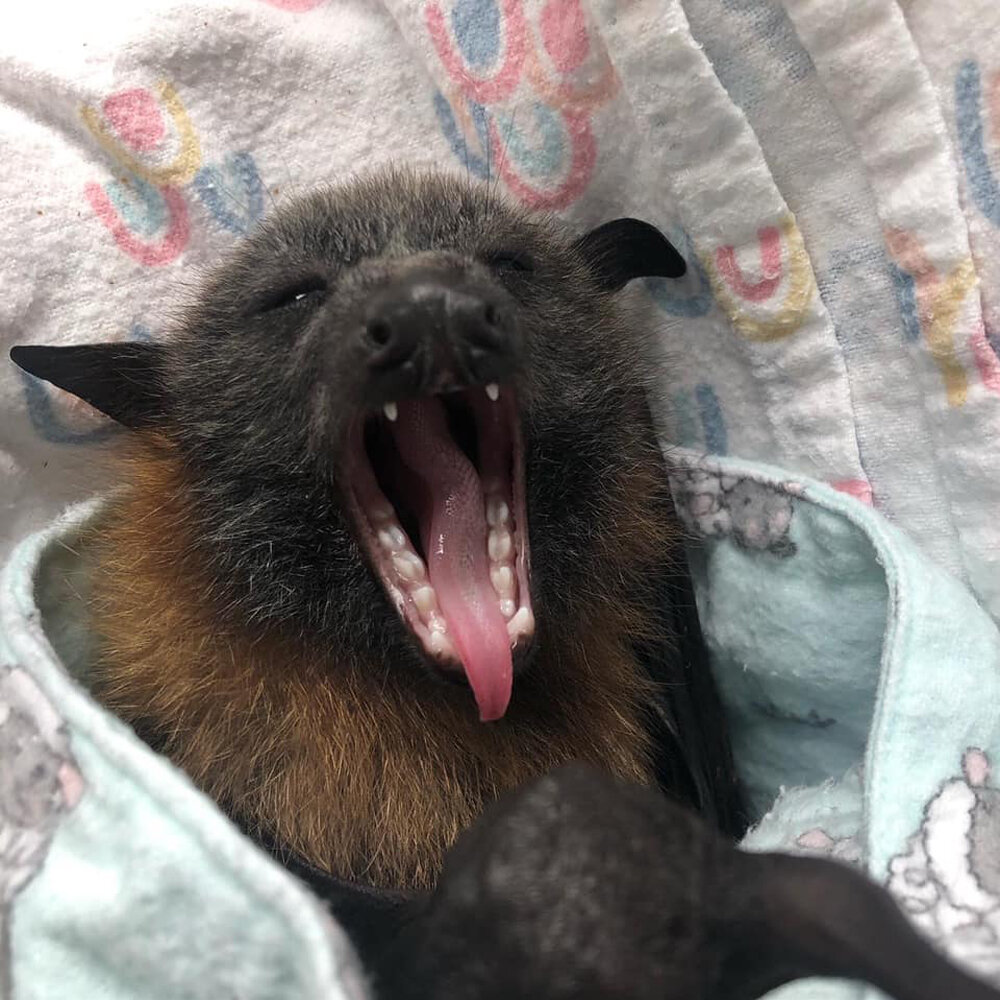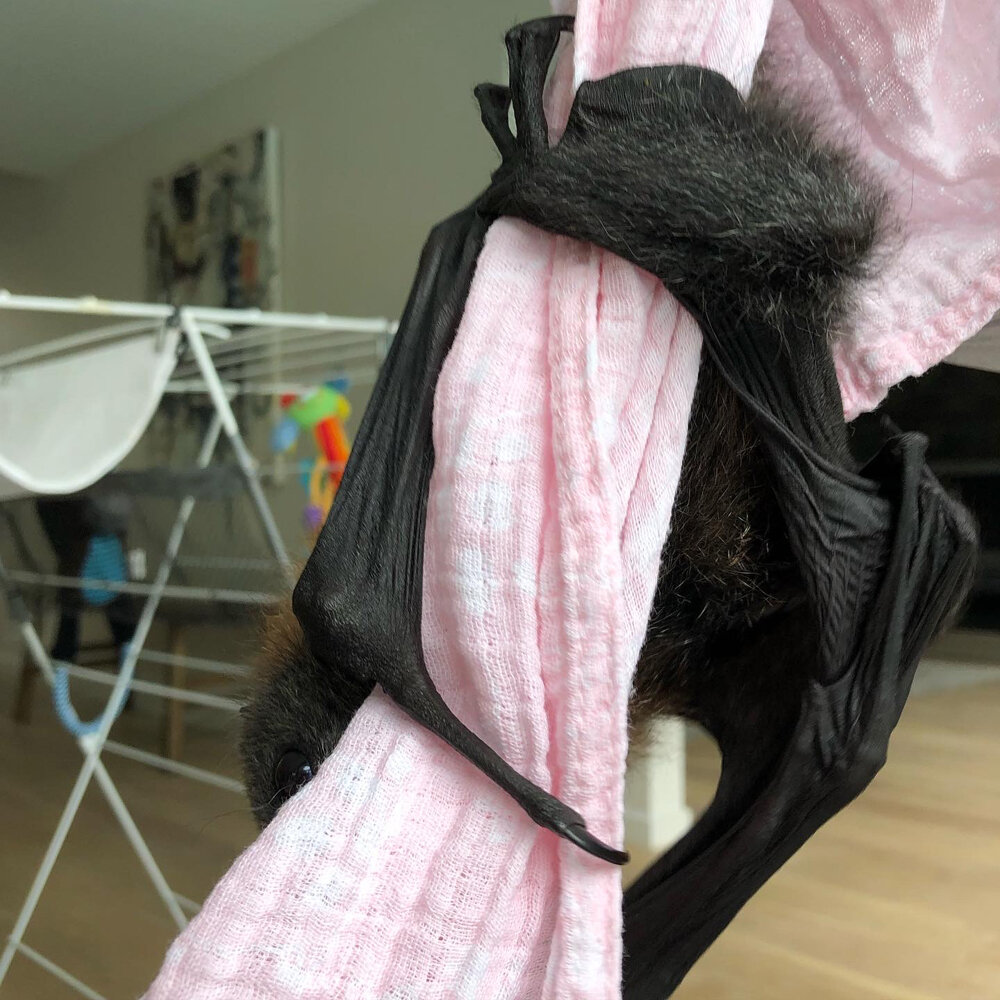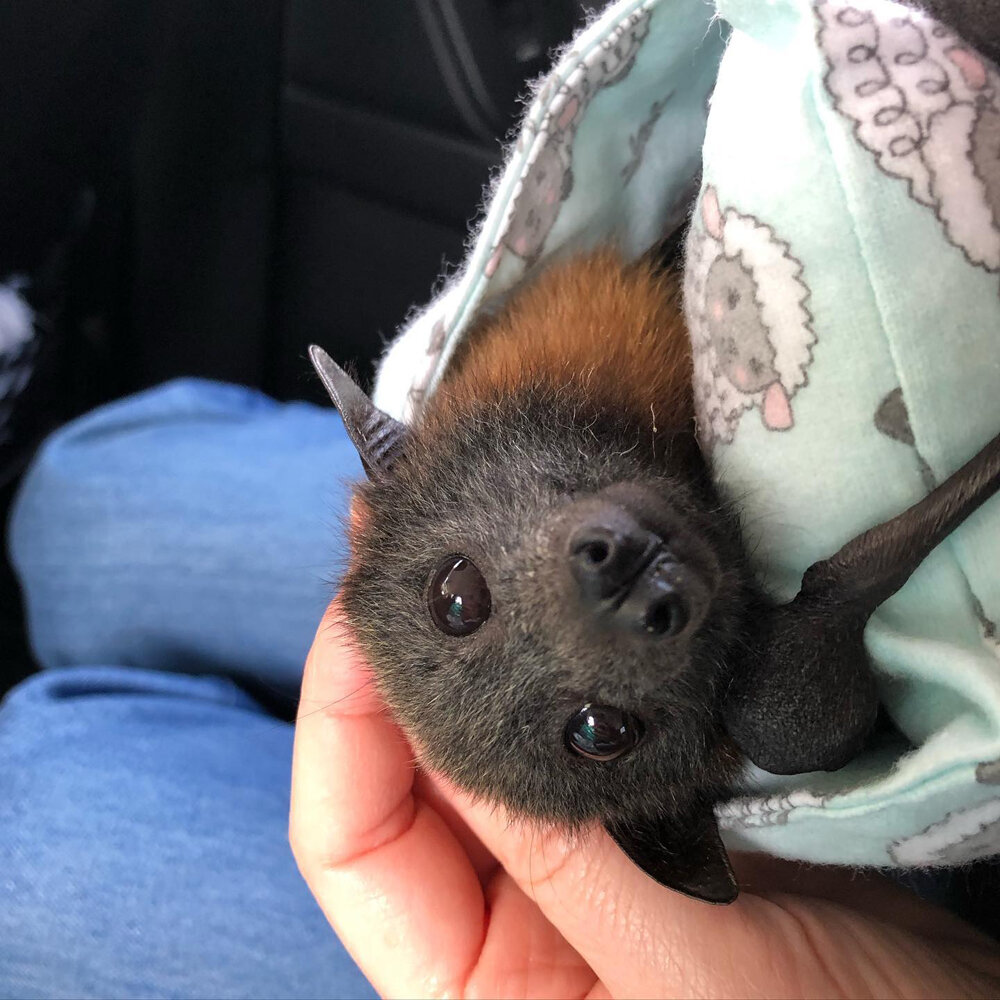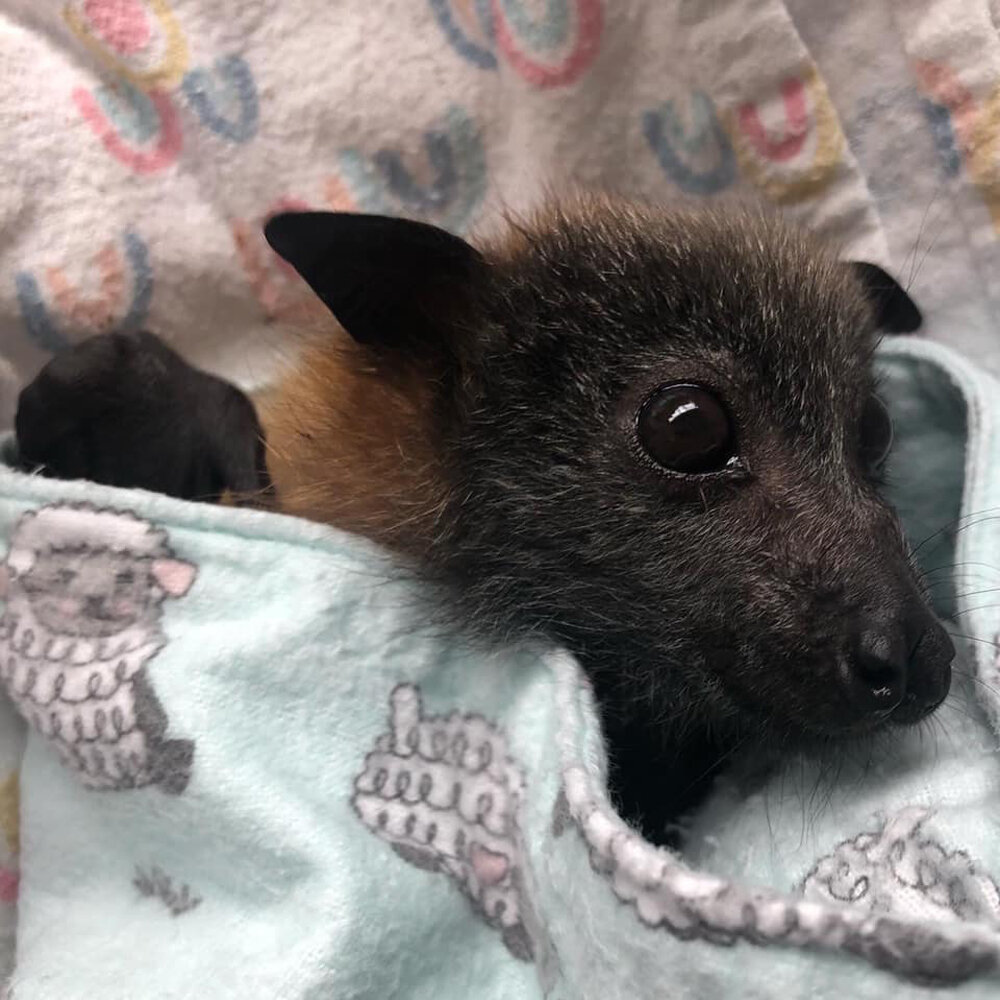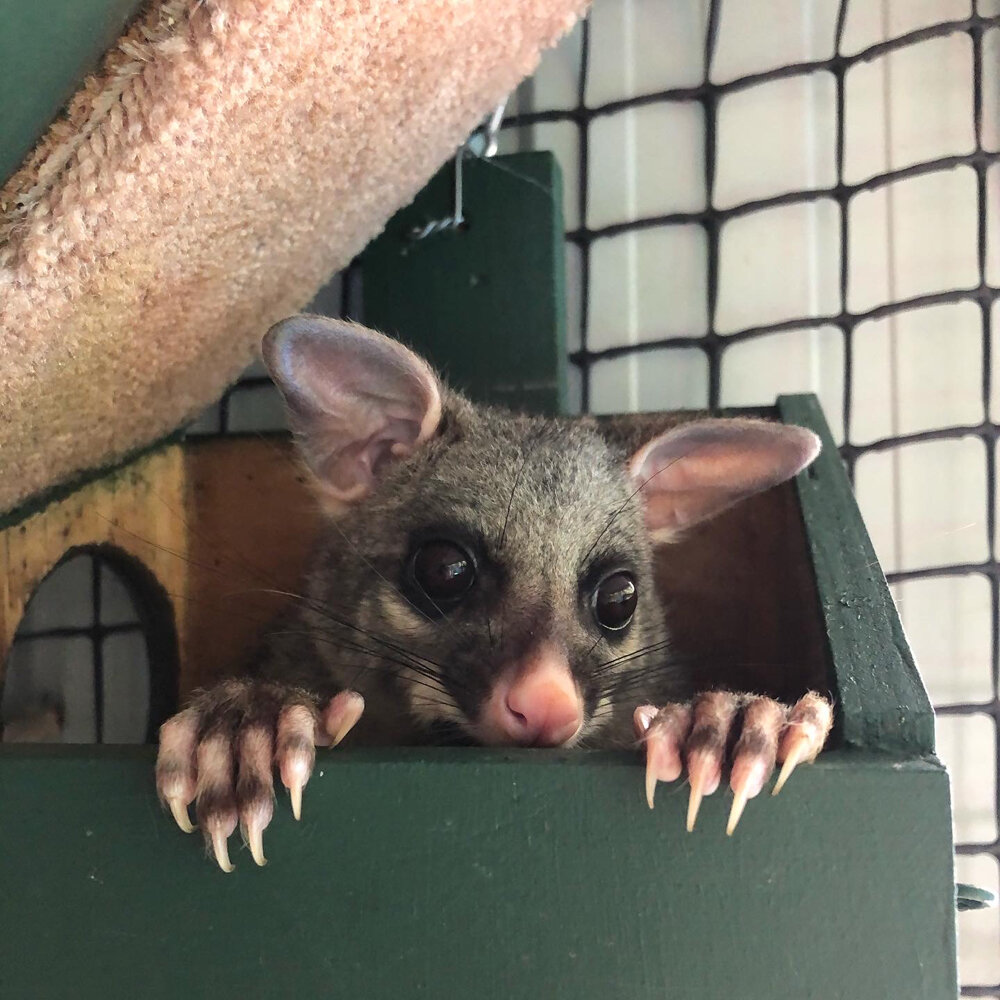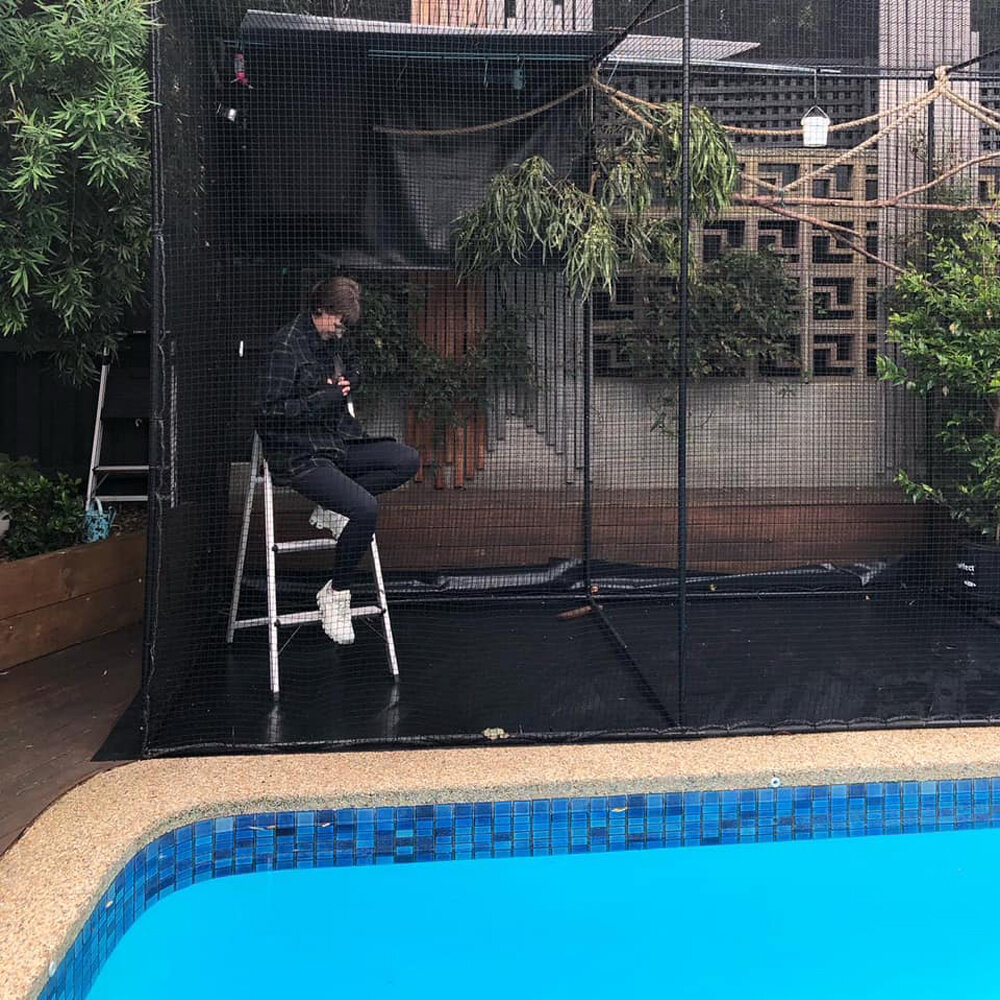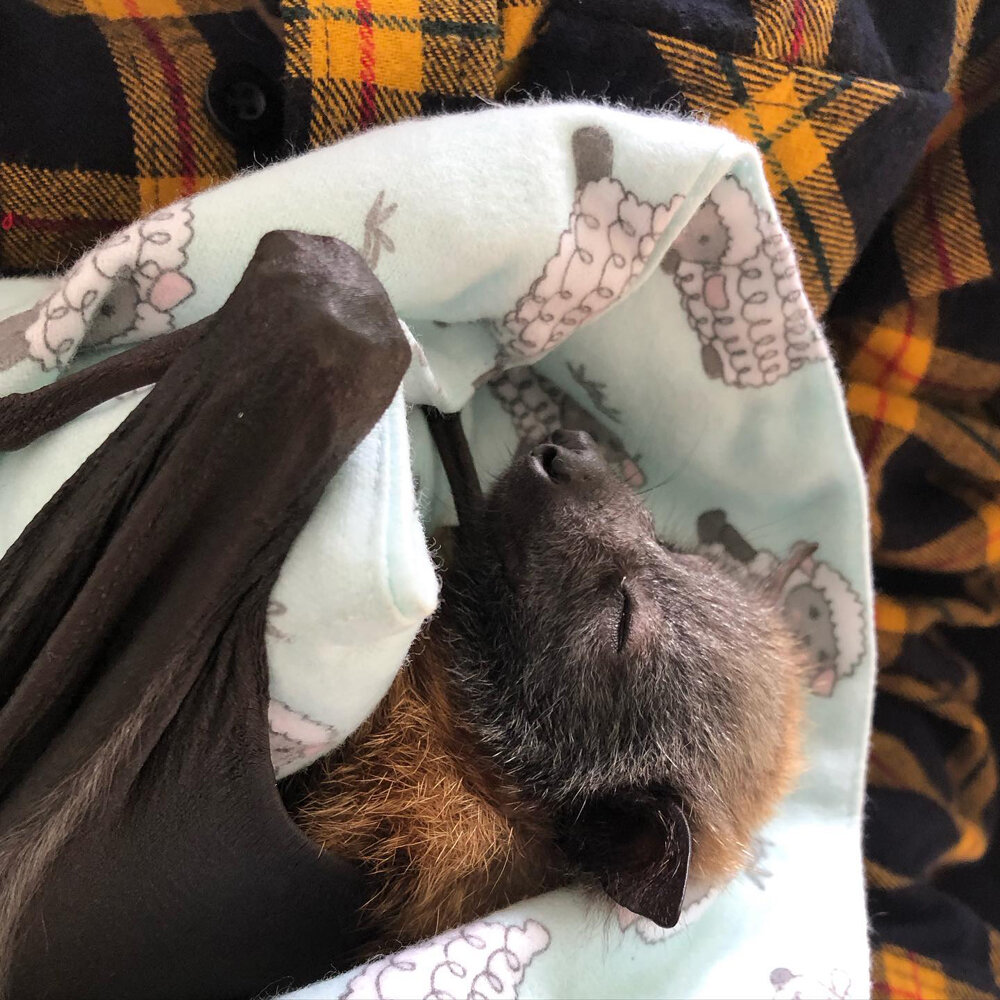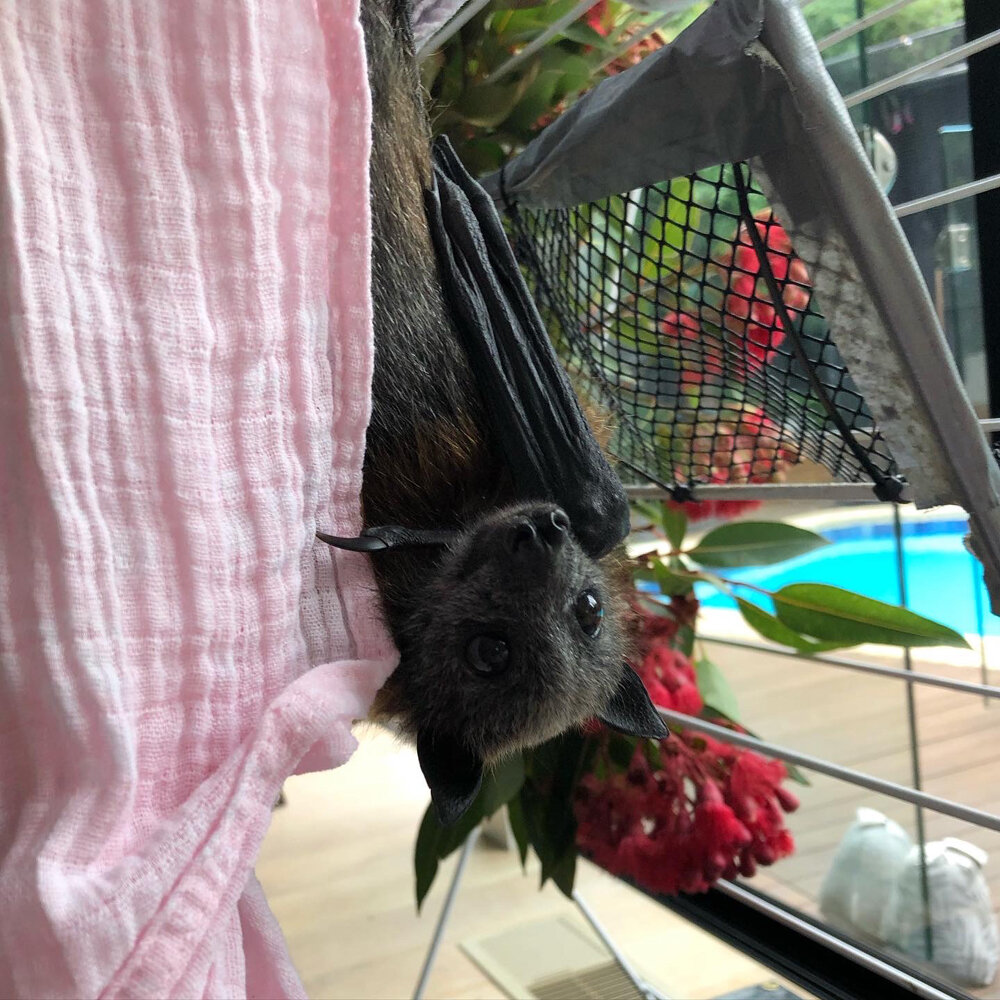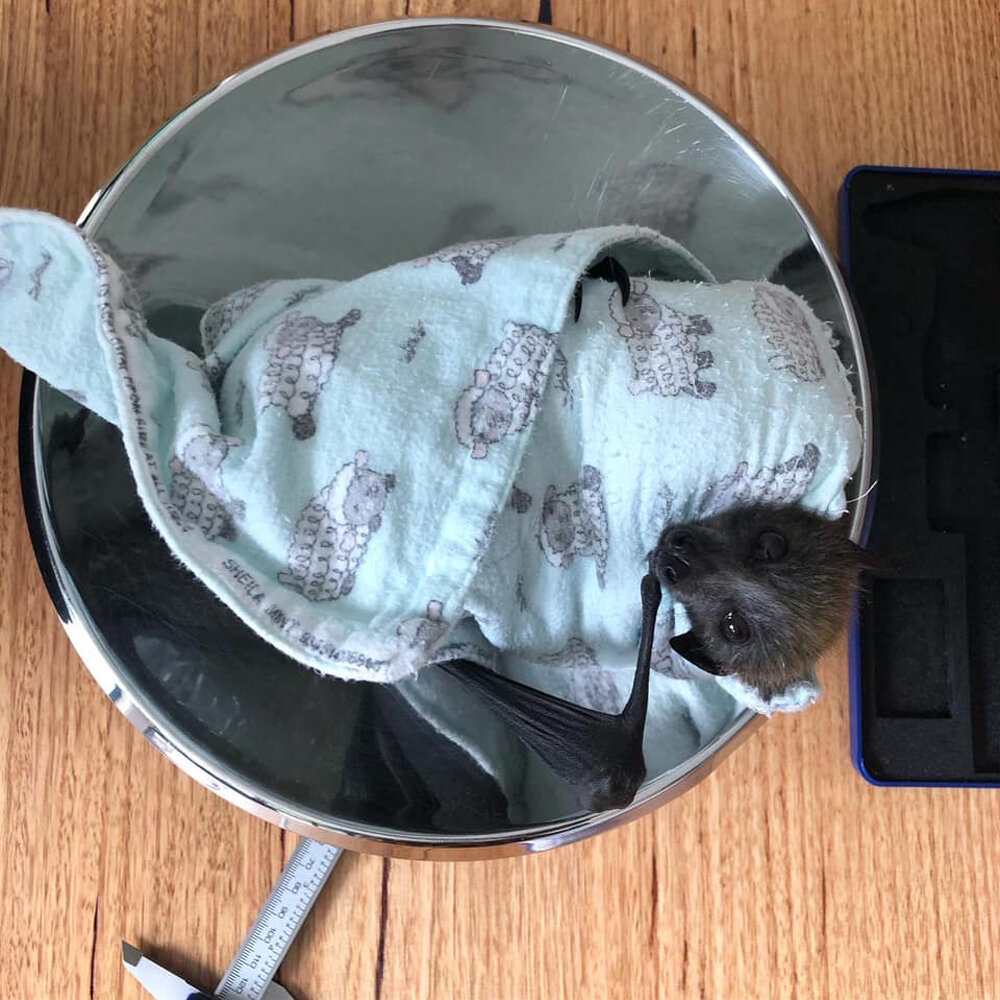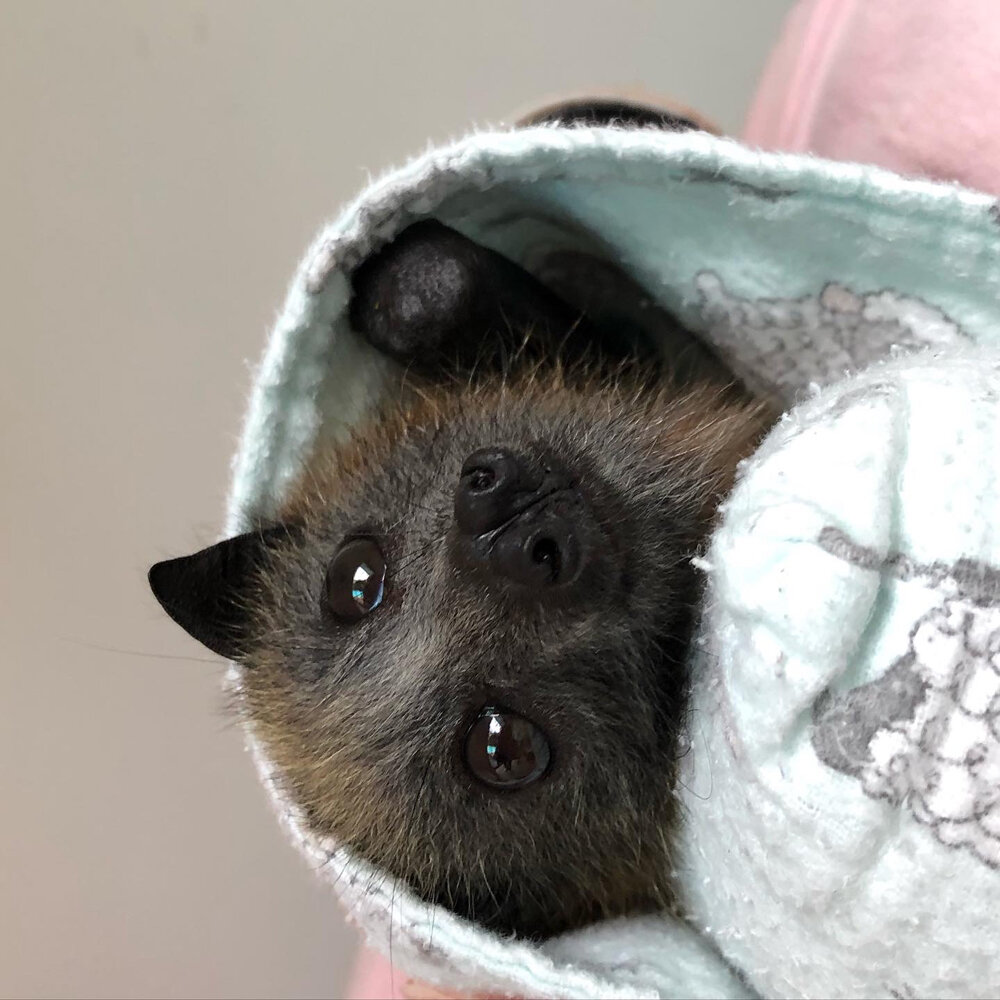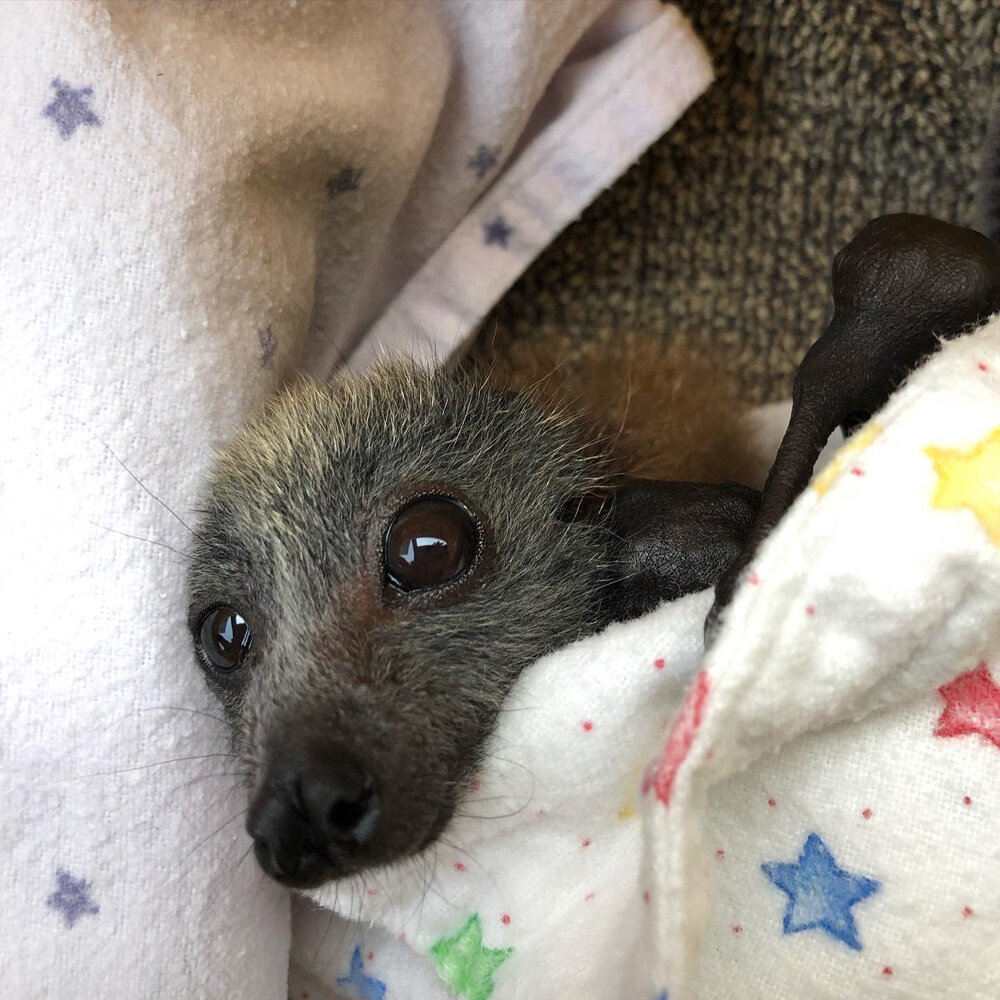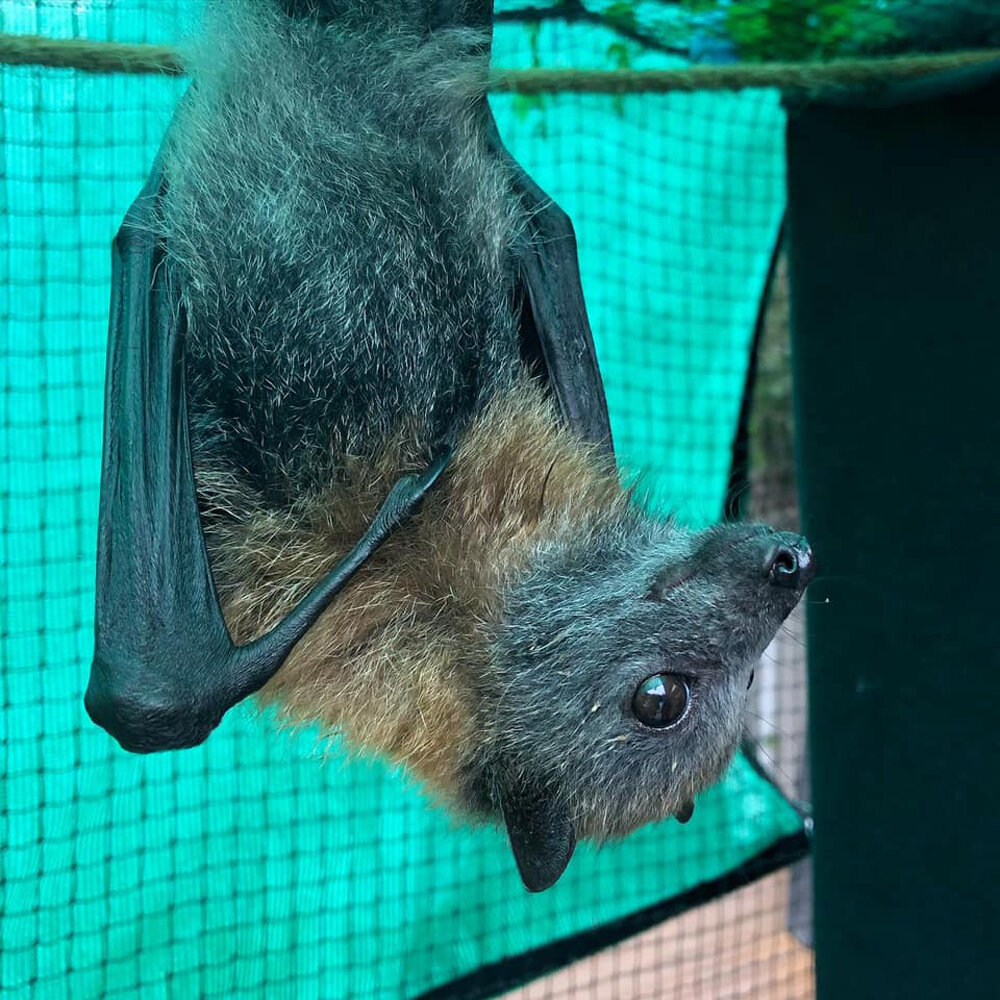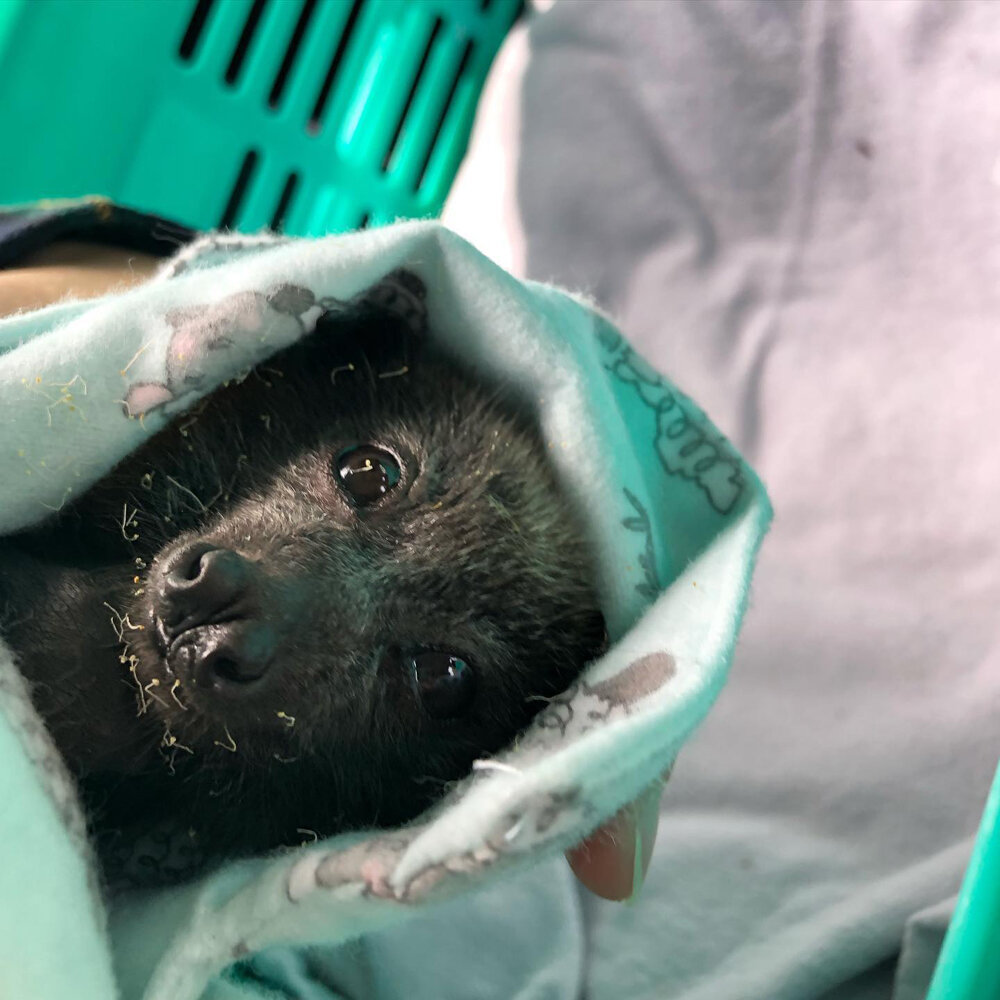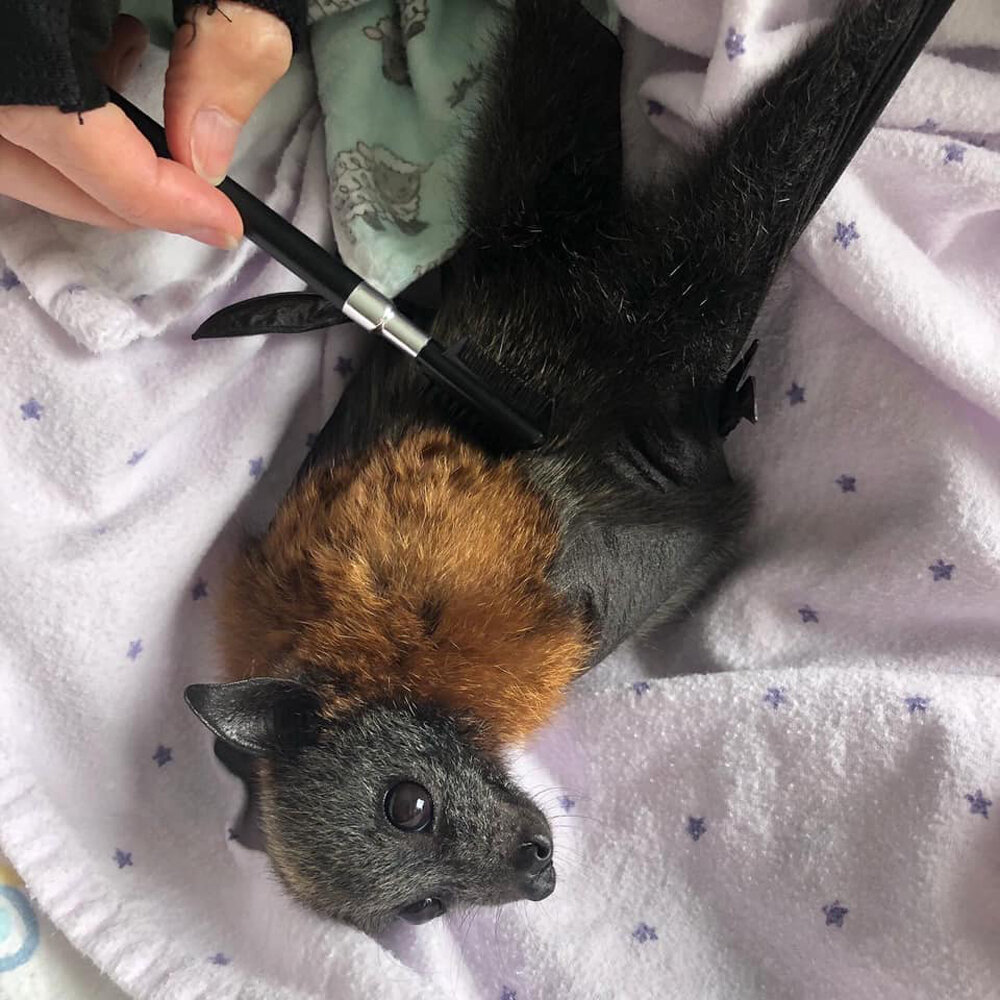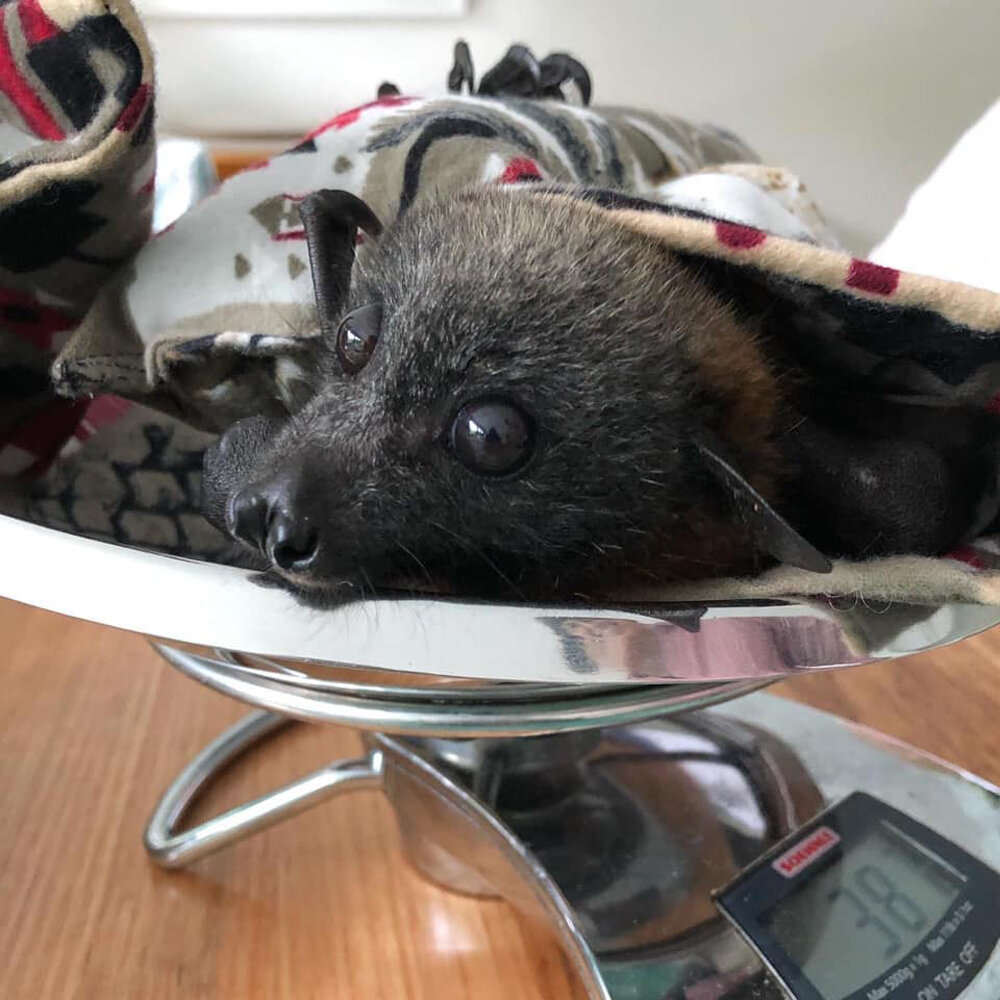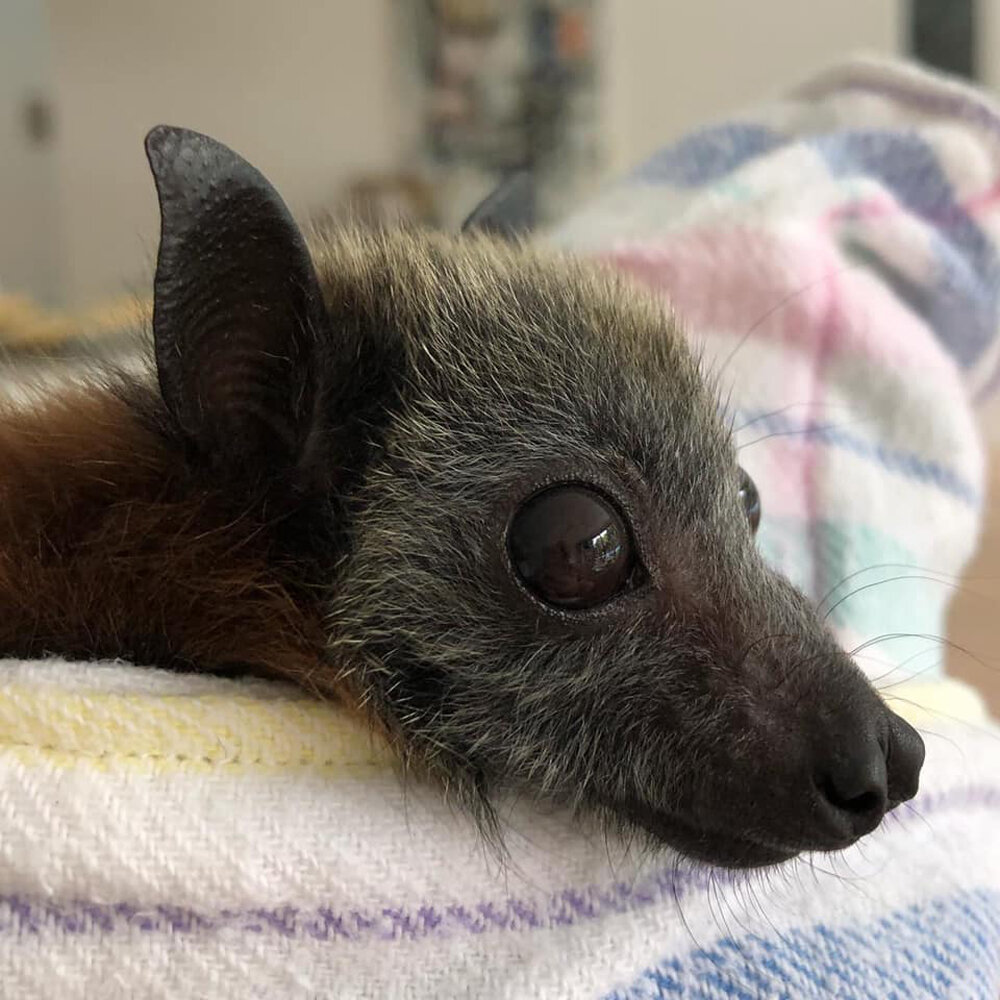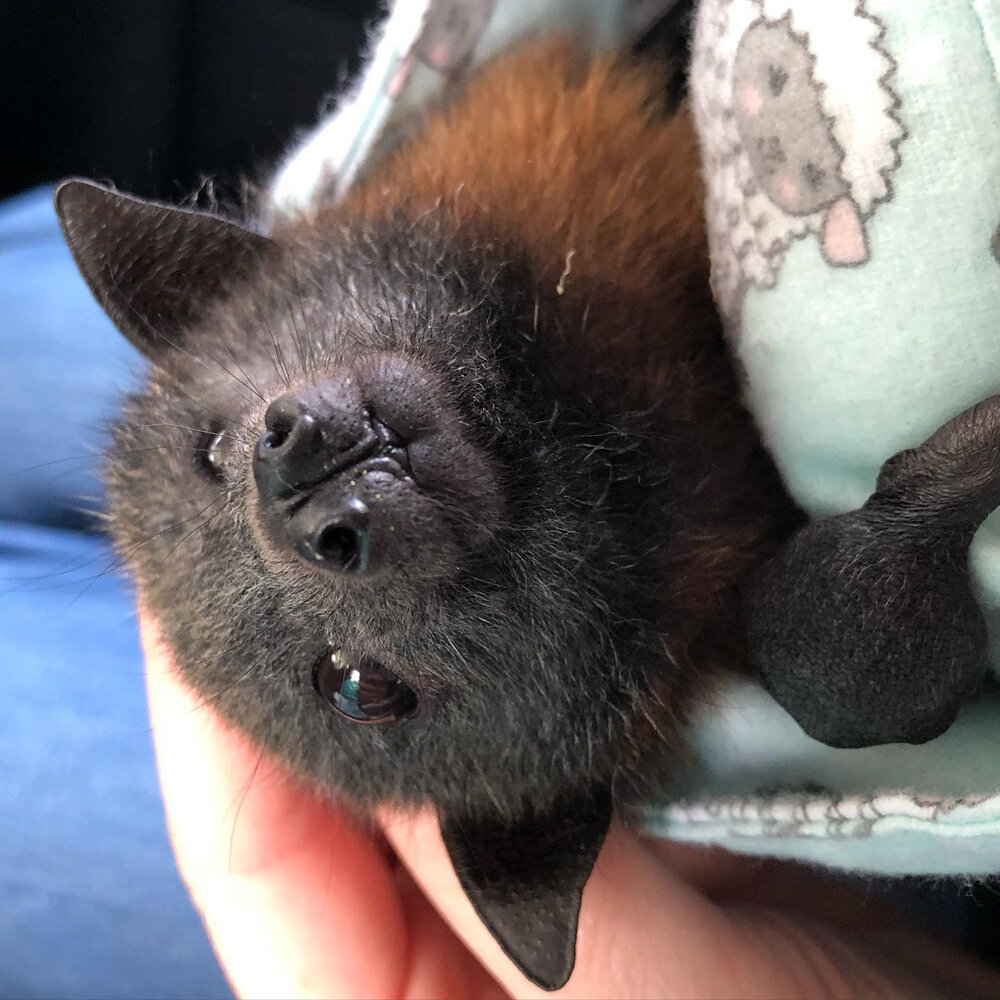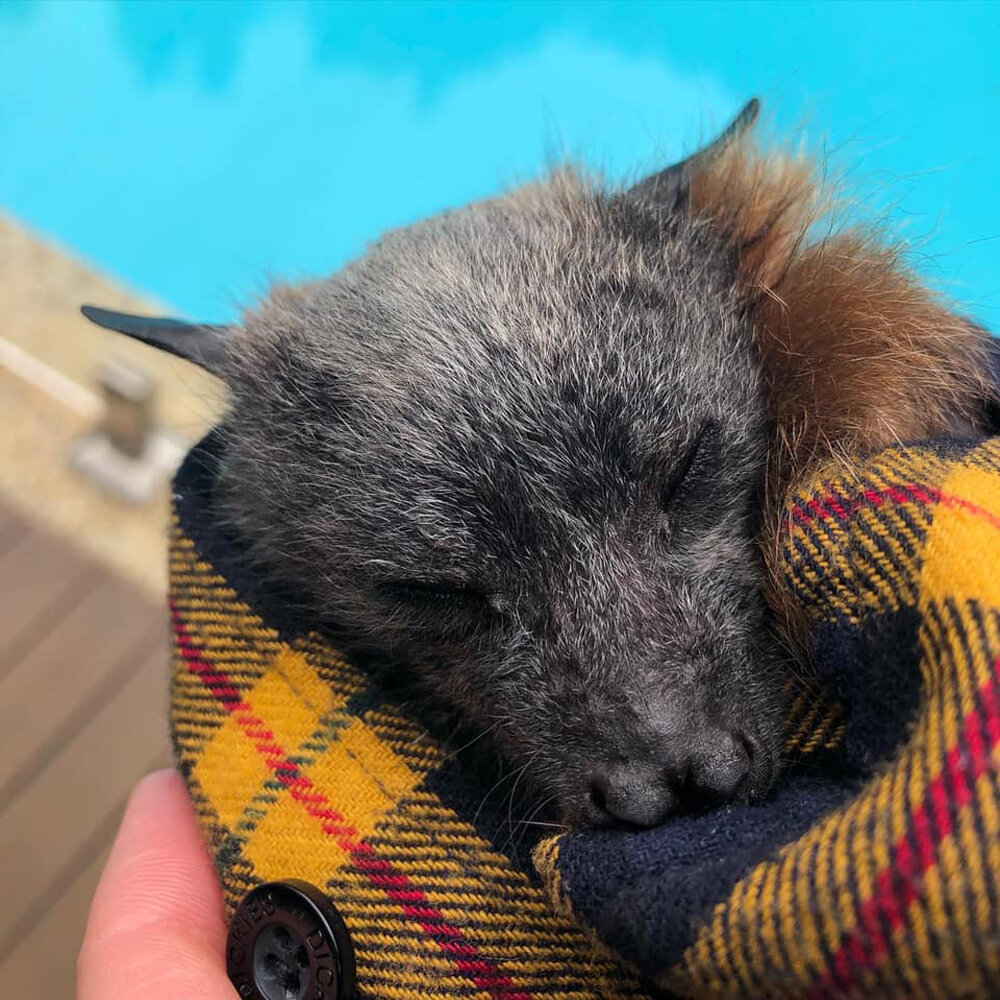Megabat, megacute

GREY-HEADED FLYING FOX
SCIENTIFIC NAME: PTEROPUS POLIOCEPHALUS
ALTERNATIVE NAME/S: FRUIT BAT (COMMON NAME), SKY PUPPY (AFFECTIONATE NAME)
CONSERVATION STATUS: VULNERABLE
The end of the season draws near. Last thrice-a-day feeds for Chika. Crèche with Notty, Little Dot, Bluey, and Miss Pink calls. Soft release, soon. The big world, after that. 100% bat. 100% ready.
It has been a privilege to be around these intelligent creatures. To observe them, care for them, those future pollinators. To be one step closer to feeling what it is like to be a Salvaged Relative in one of our artists’ books with a scamper, scamper, incoming cuddle. It has been heavy, at times, to be close to the trauma of the orphans; and the lactating female adults in care who were not able to return to their little ones; to learn of the injuries from netting and power lines. And it has been a wonderful experience and privilege to learn from Bev, first hand, how to care for Grey-headed flying foxes. Her love and generosity, her knowledge and skill, her deep connection to these animals: we are in awe, absolute.
So before it is time to say goodbye to Chika and Miss Pink (rewind: tiny!), Lola, Notty, Little Dot (a dot no more), Bluey, Deeno, and co, a few more glorious moments. Also pictured here, BoBo (with that impressive pink tongue! Those teeth! That spark!), who is already in crèche.
Not just brilliant bats. Ringtail and Brushtail possums as well. Up close, almost nose to pearlescent nose, to Milly and Molly, who are also ready for soft release. A curl, a world, of softness.
Weighing and measuring the forearms (to determine age) to chart the progress of Lola, a recent orphan Heat Stress Event rescuee, her movements are fast: she knows the language of trees and flight. Ours, by comparison, cautious and lumbered, not for flight, as we try to take it all in. Store up the experience for next season. So much to learn.
From fruit prep with protein supplement powder to how to handle the adult bats in the soft aviary, all of whom are recovering from netting injuries, we have learned how to gently scoop an adult bat up in a towel, securing the head (fast!), unhooking their toes and powerful thumbs, in order to bring them inside to look over their injuries and apply cream and change dressings; how to administer liquid antibiotics; how to stabilise a pup.
Bat chat, yawns, lovely learning curve. Wing flaps, pollen face-plants, and chestnut grooming with a tiny makeup wand. Much to miss, but much to look forward to.
A symbiotic relationship of mutualism. To continue, for sure.
A heat pad. A cake rack. Assorted towels for hammocks. Some of the things we’ll need for helping to raise orphan pups next season. A heat pad to ensure they are kept at 28°C. The cake rack? It ensures airflow beneath the heatpad upon which they rest. Other items listed in The Flying Fox Manual include milk replacer, digital scales, 10mL Syringes, calipers for measuring forearms (of which we have a pair used for measuring book depth), newspaper in ready supply, and under miscellaneous, “a good sense of humour — mandatory”. So too, old shirts.
Yes, to continue, for sure.
“Fruit netting entanglement produces all sorts of problems such as bruising, swelling, circulation cut-off (with associated issues such as membrane dieback, gangrene, and blood clots), muscle and tendon damage, infection, and broken bones.” — Dave Pinson, The Flying-fox Manual
“From September 2021 any netting used to protect household fruit trees, vegetable gardens or other fruiting plants must have a mesh size no greater than 5mm X 5mm at full stretch.” — wildlife.vic.gov.au
As we continue work on our new site, to help us with the move, shop front and all, we are having a 40% off everything sale on every zine and more in our online store. The sale runs until the 14th of February, 2021. Please use the code “2021” upon checkout, to activate the discount.
(Please note: the URL will be the same as ever. No new address, but new, we hope, in every other sense.)
(Please also note: we have been vaccinated to handle bats. You need to be a qualified, vaccinated carer to handle bats. We are learning how to care for bats from Bev Brown.)
Image credit: Gracia Haby, Seen and later forgotten (Souvenir of Niagara Falls) (detail), 2009, artists’ book featuring collage elements and pencil across the pages of Souvenir of Niagara Falls, Ontario, Canada (Dominion Series View Book)
